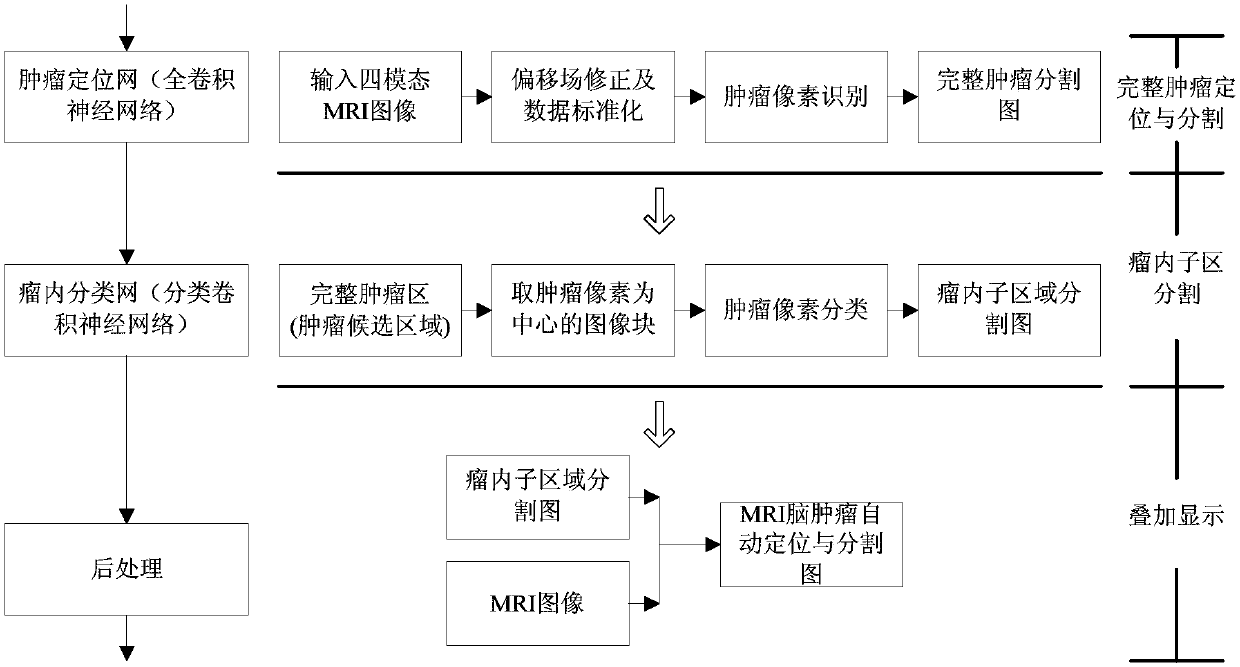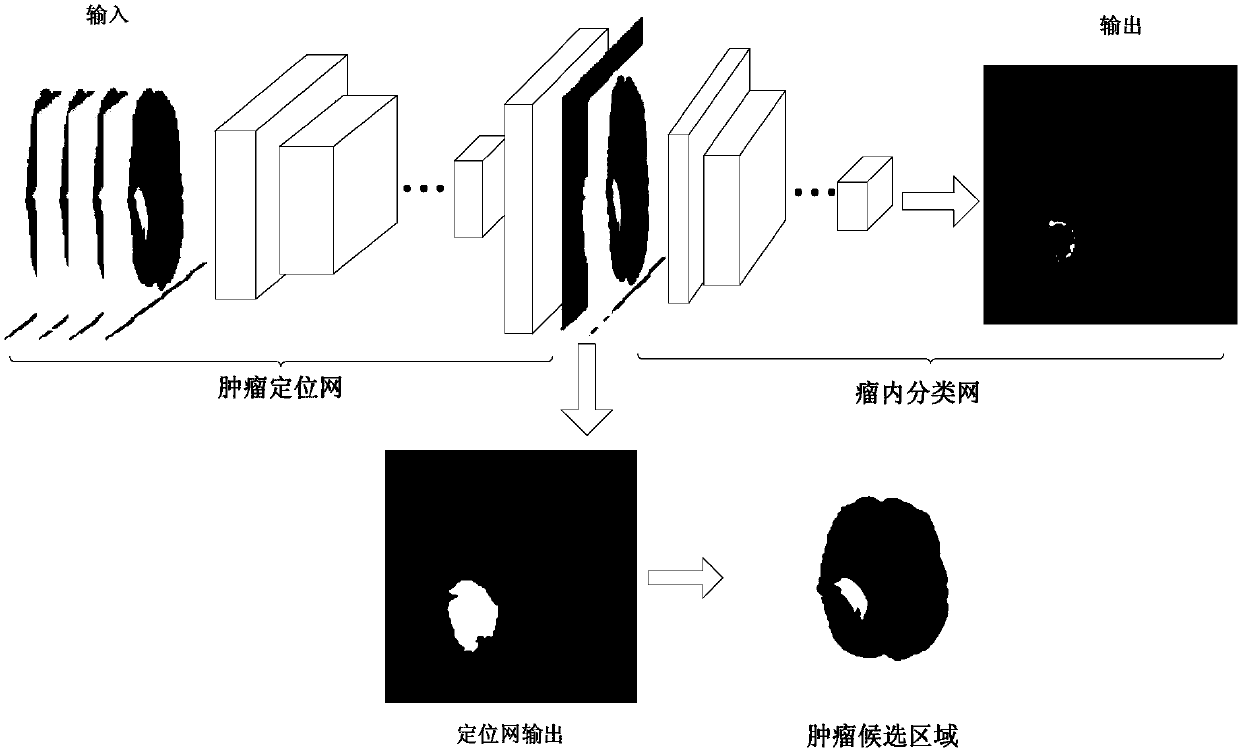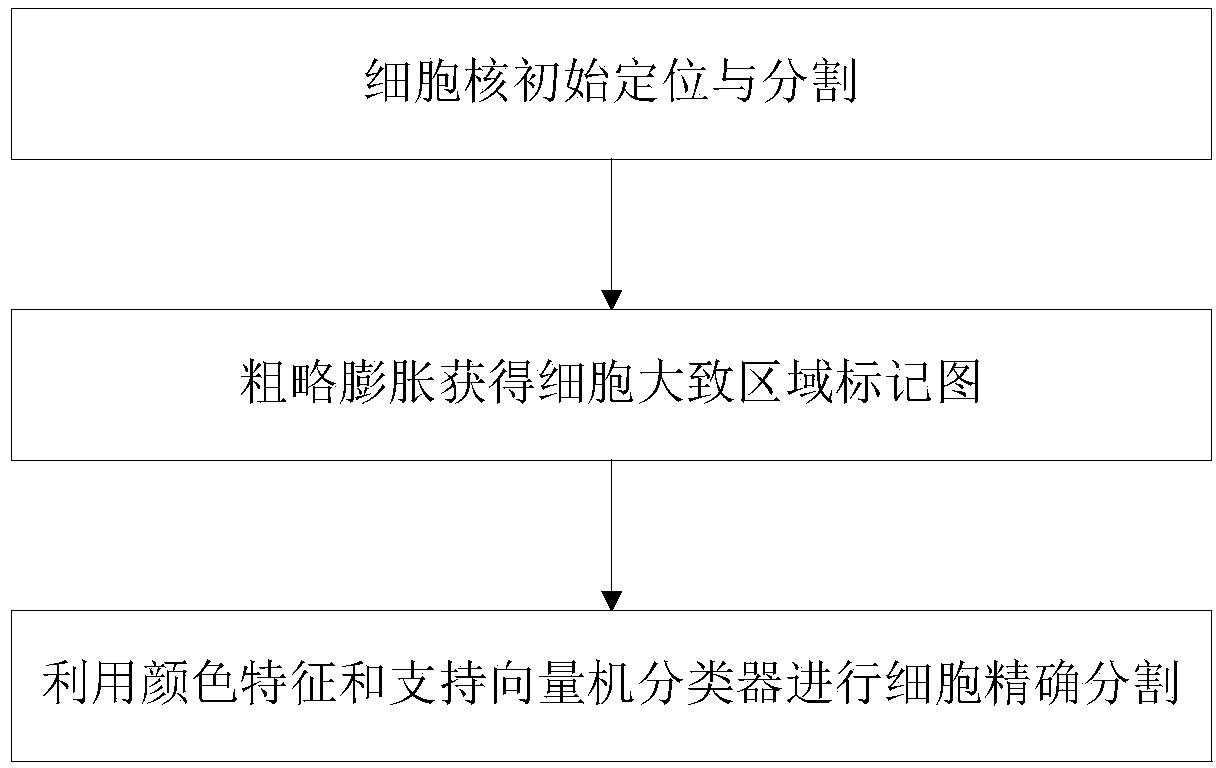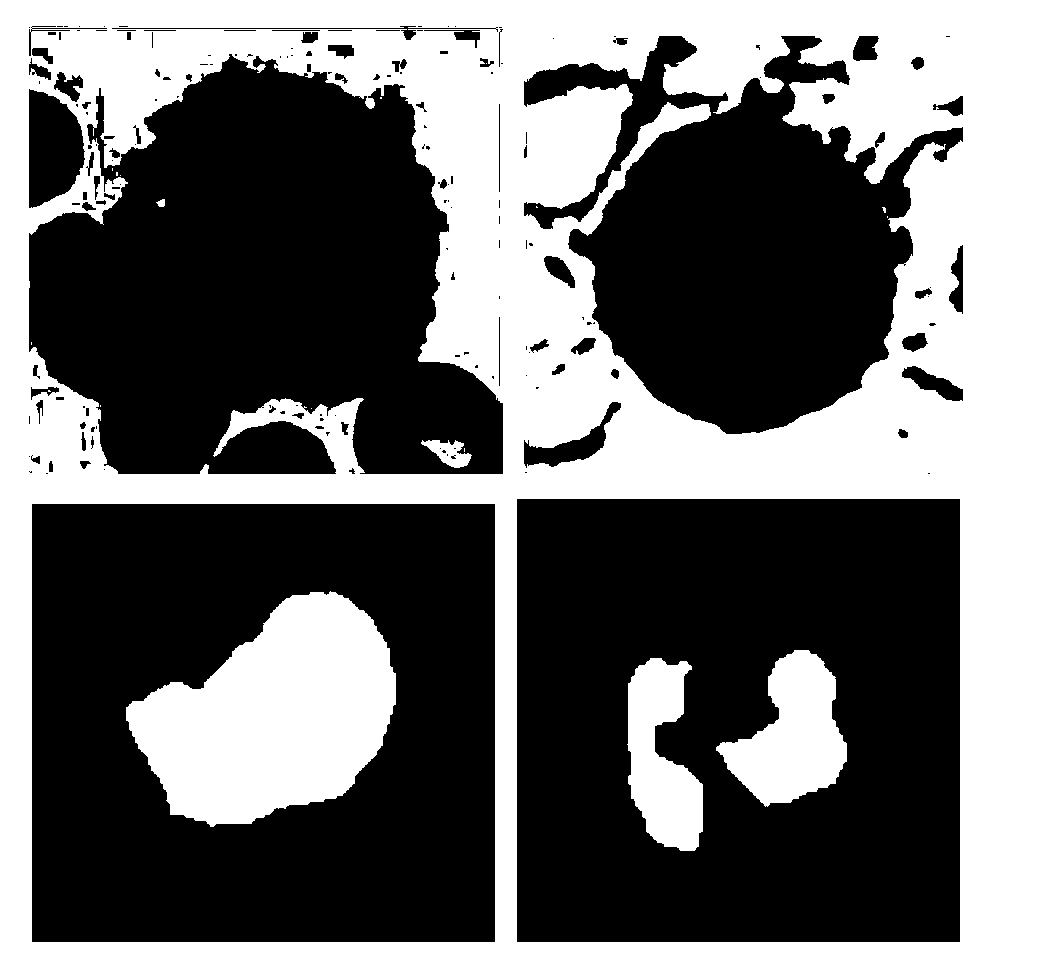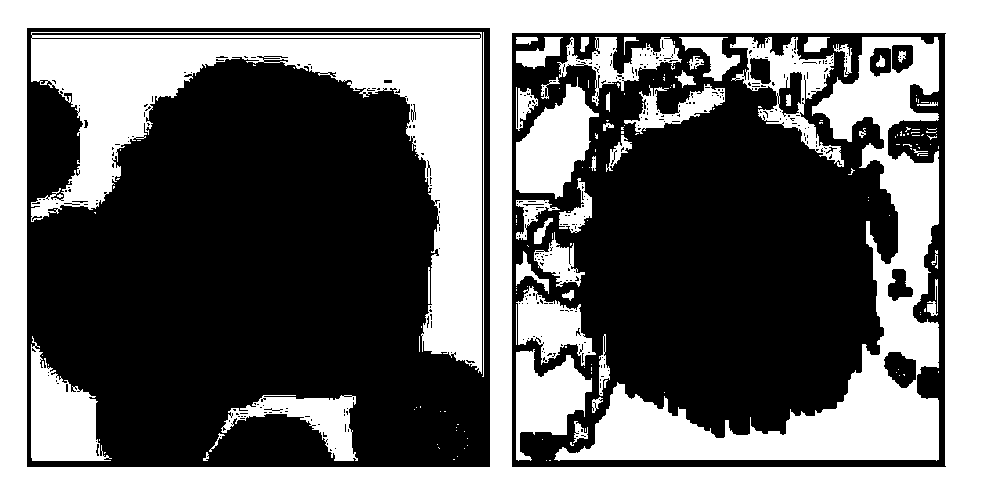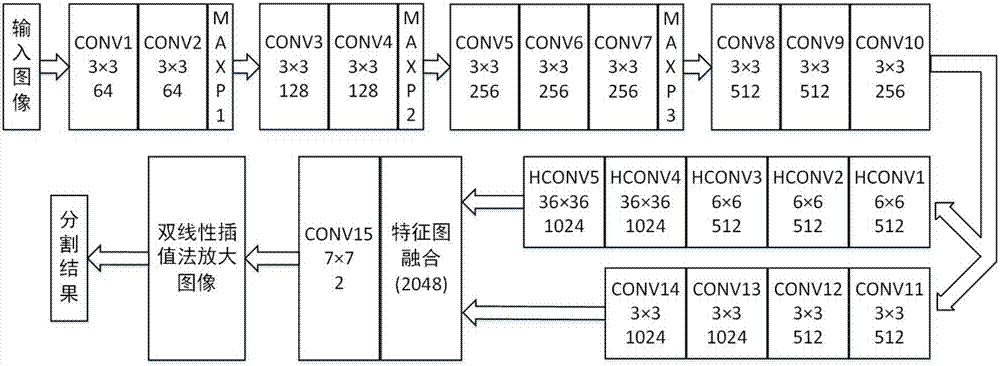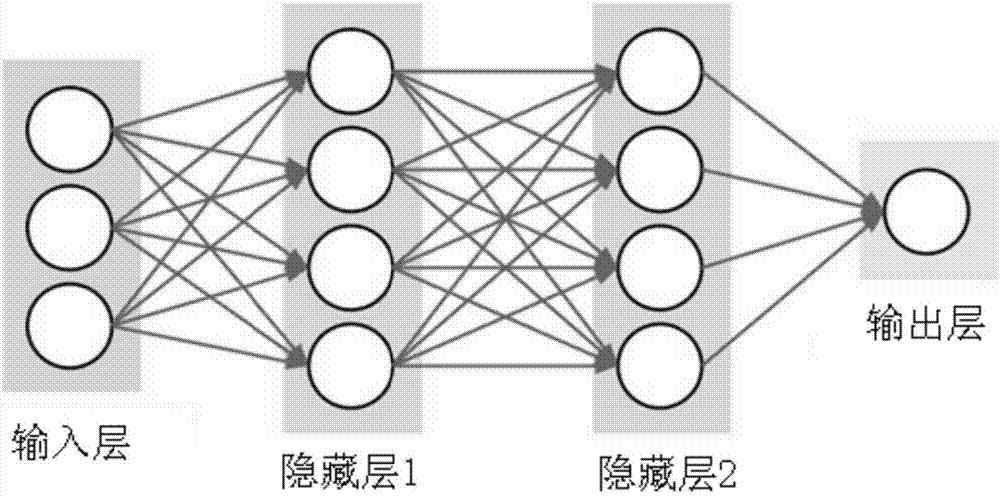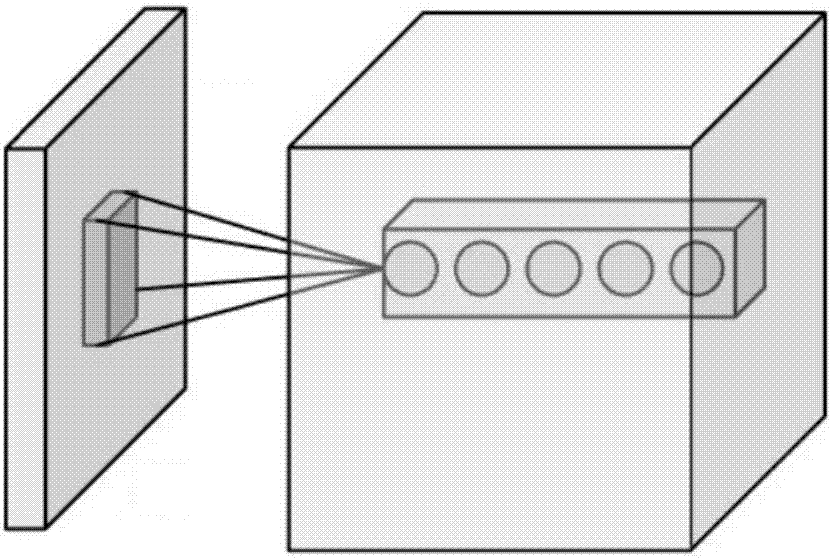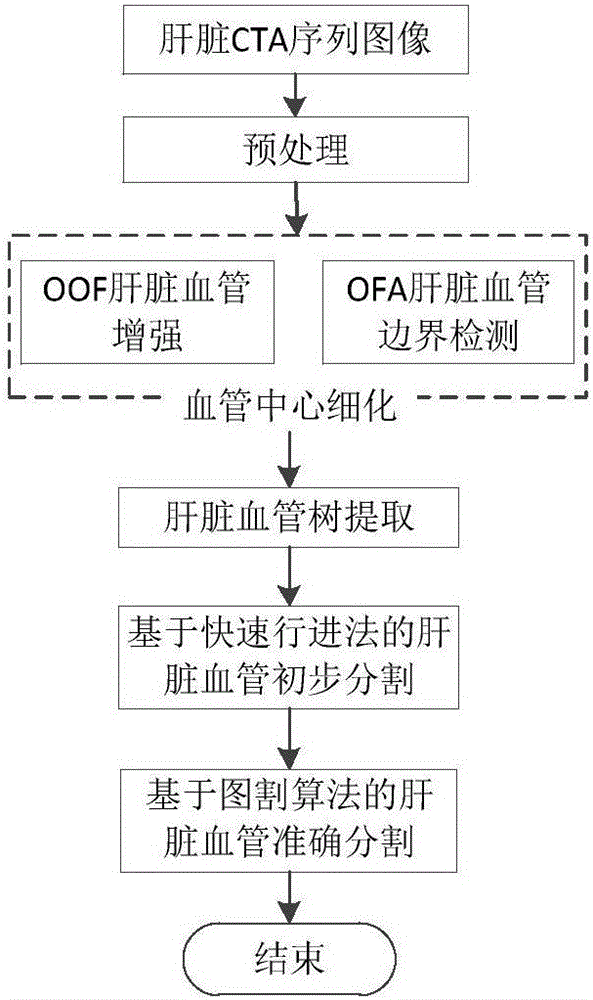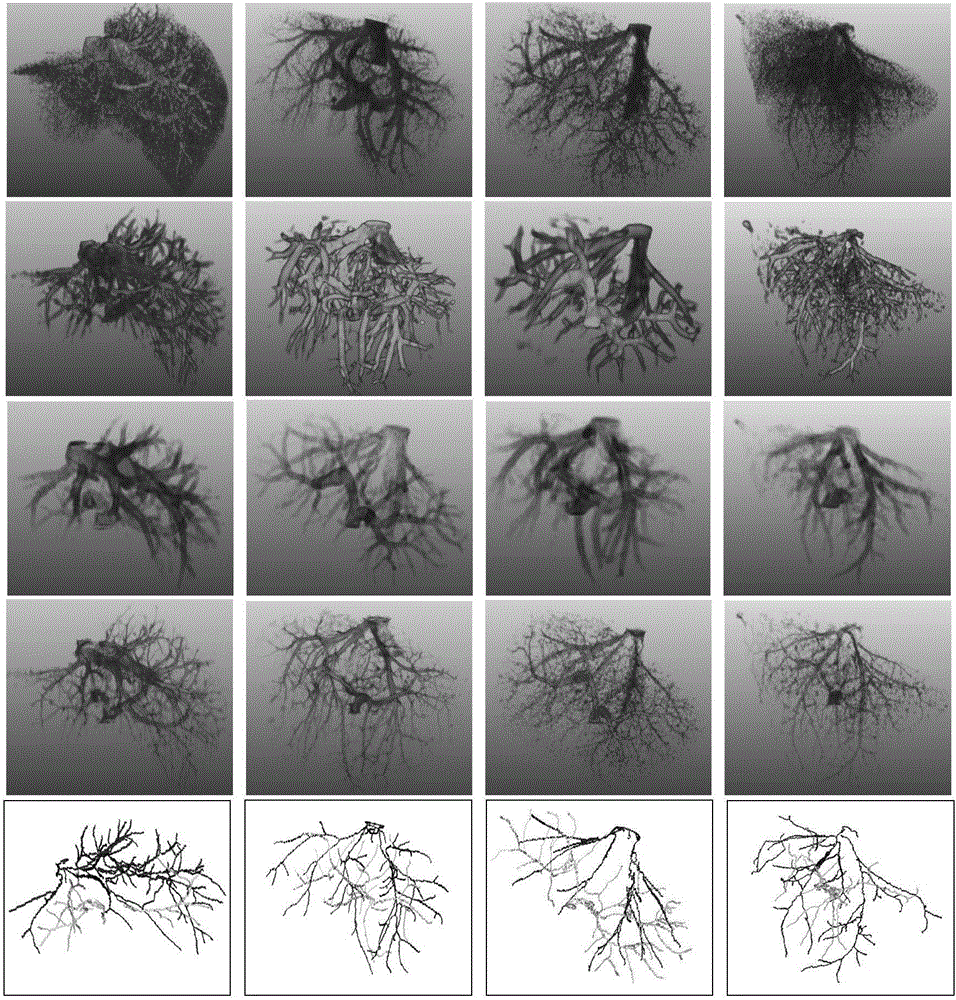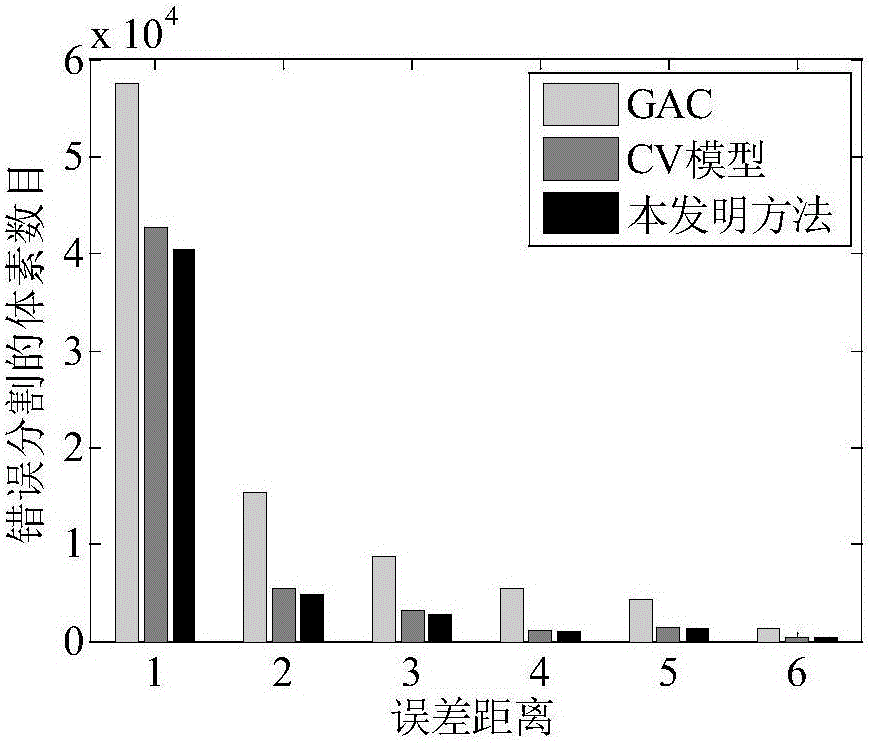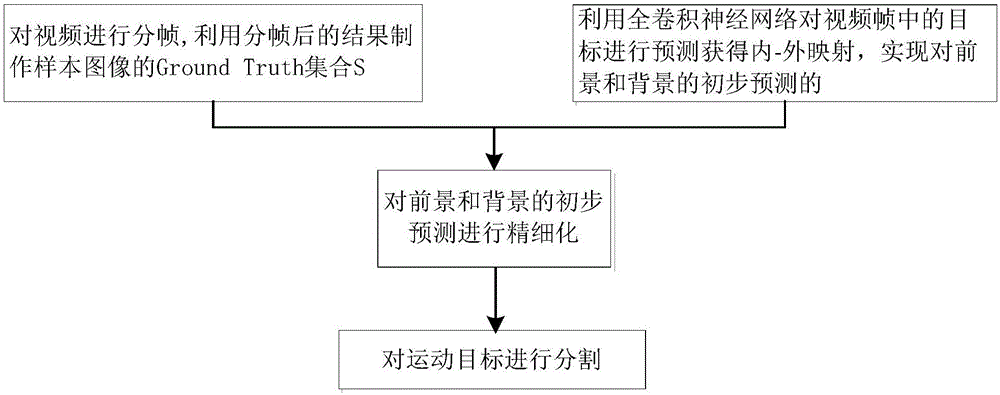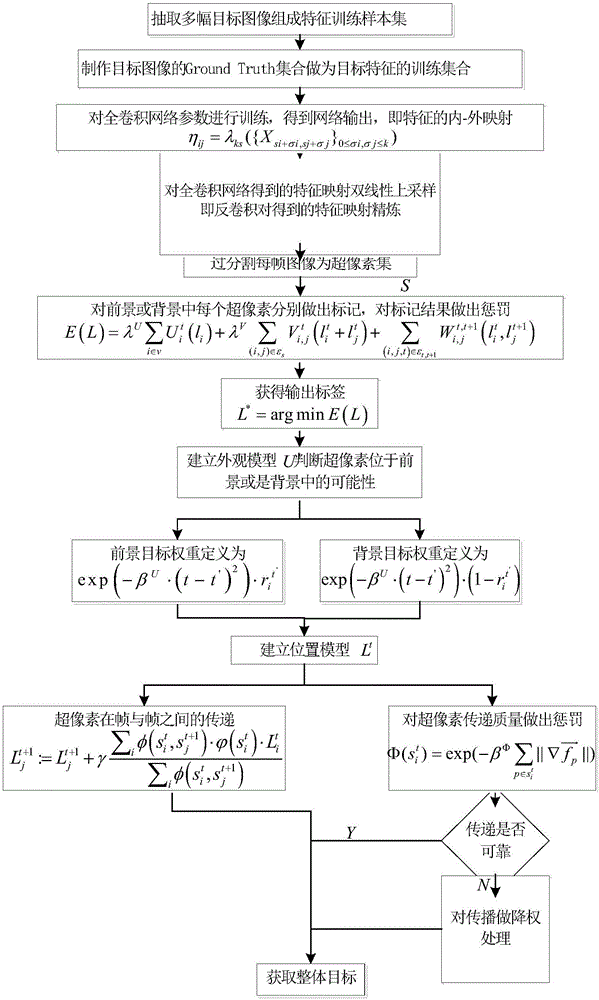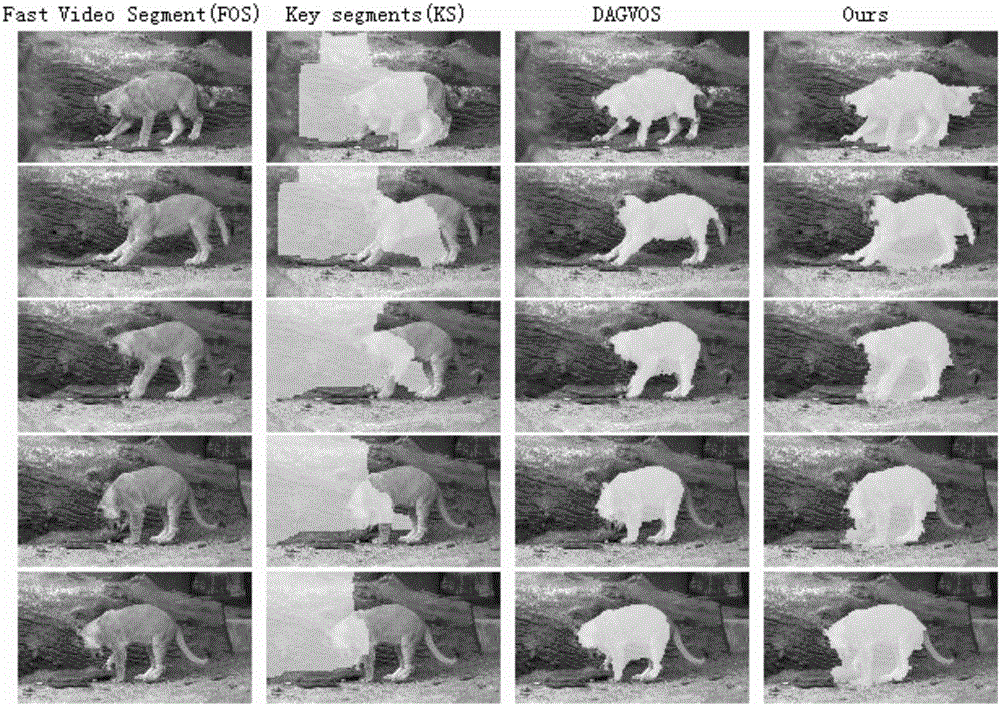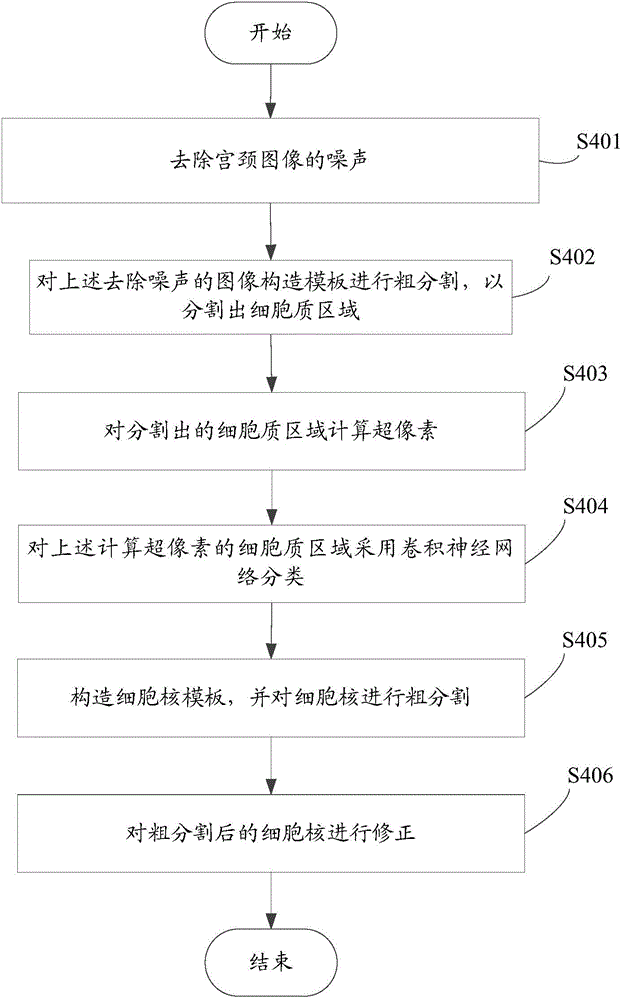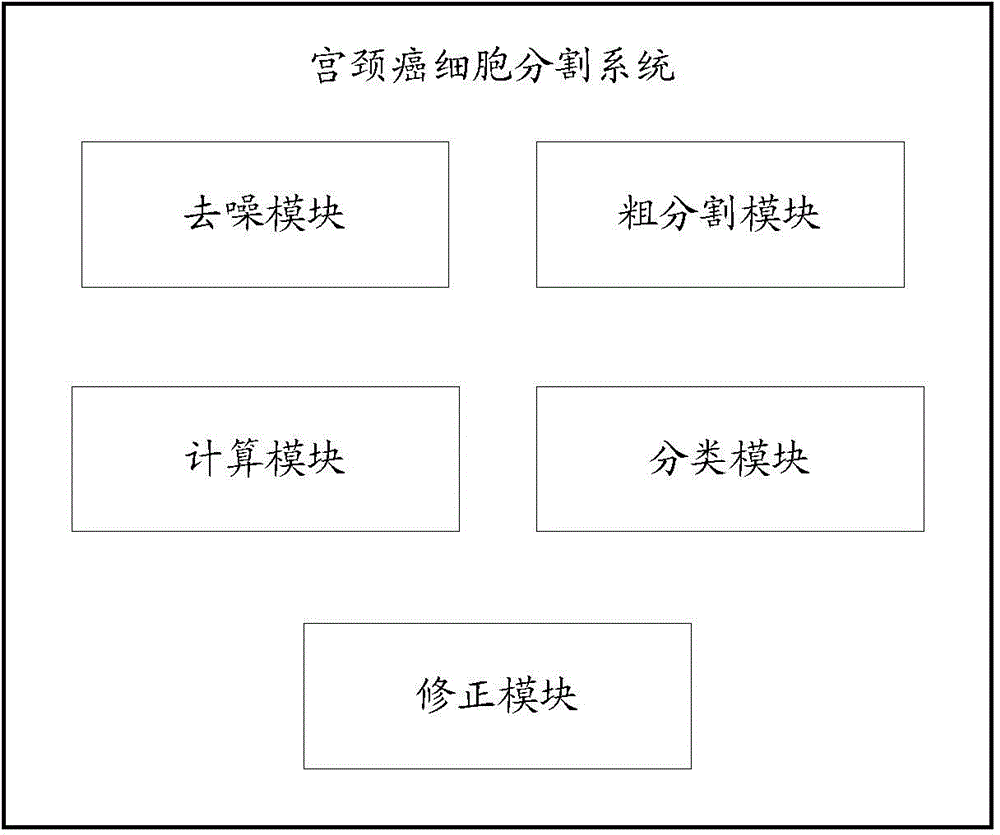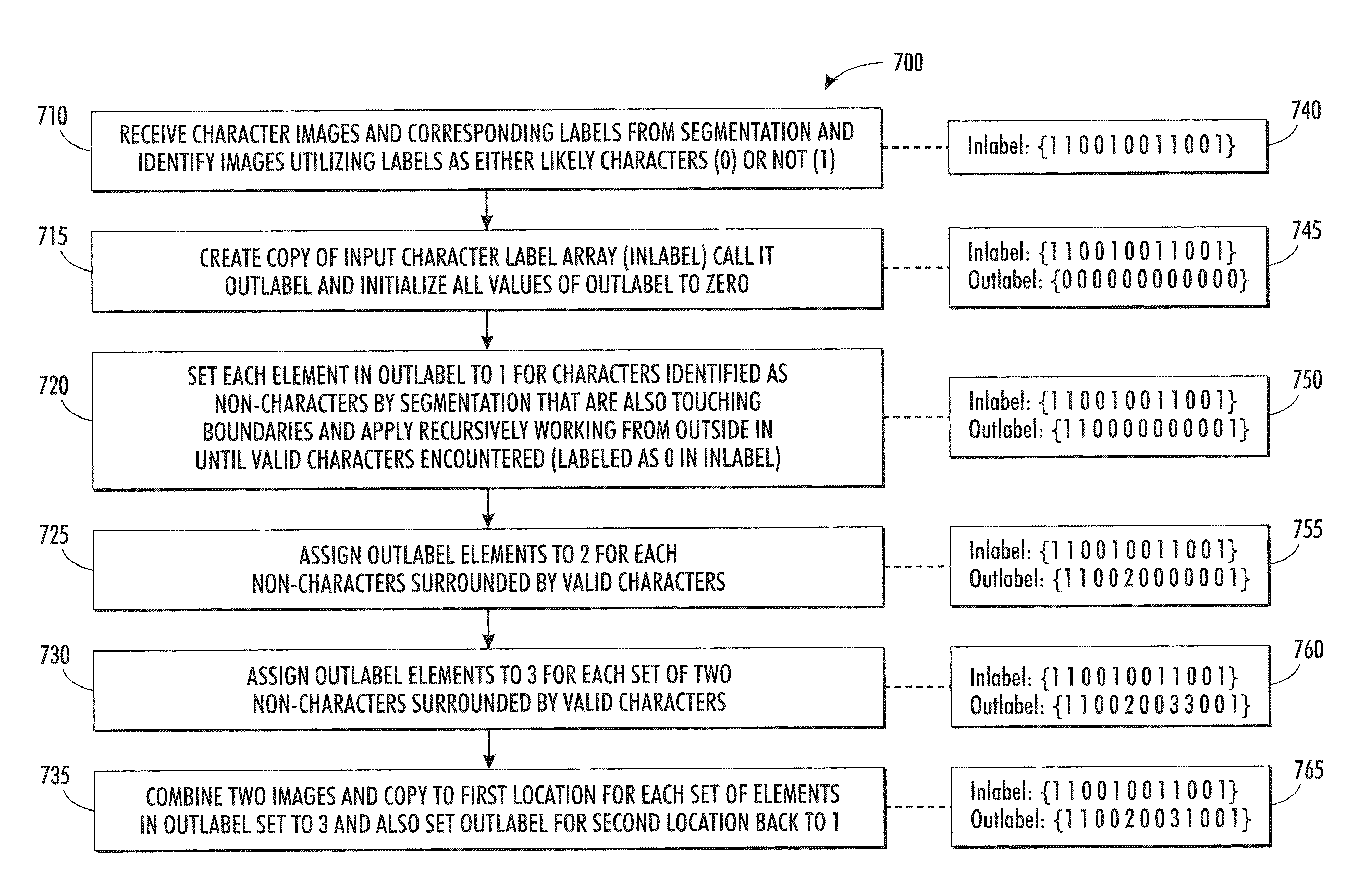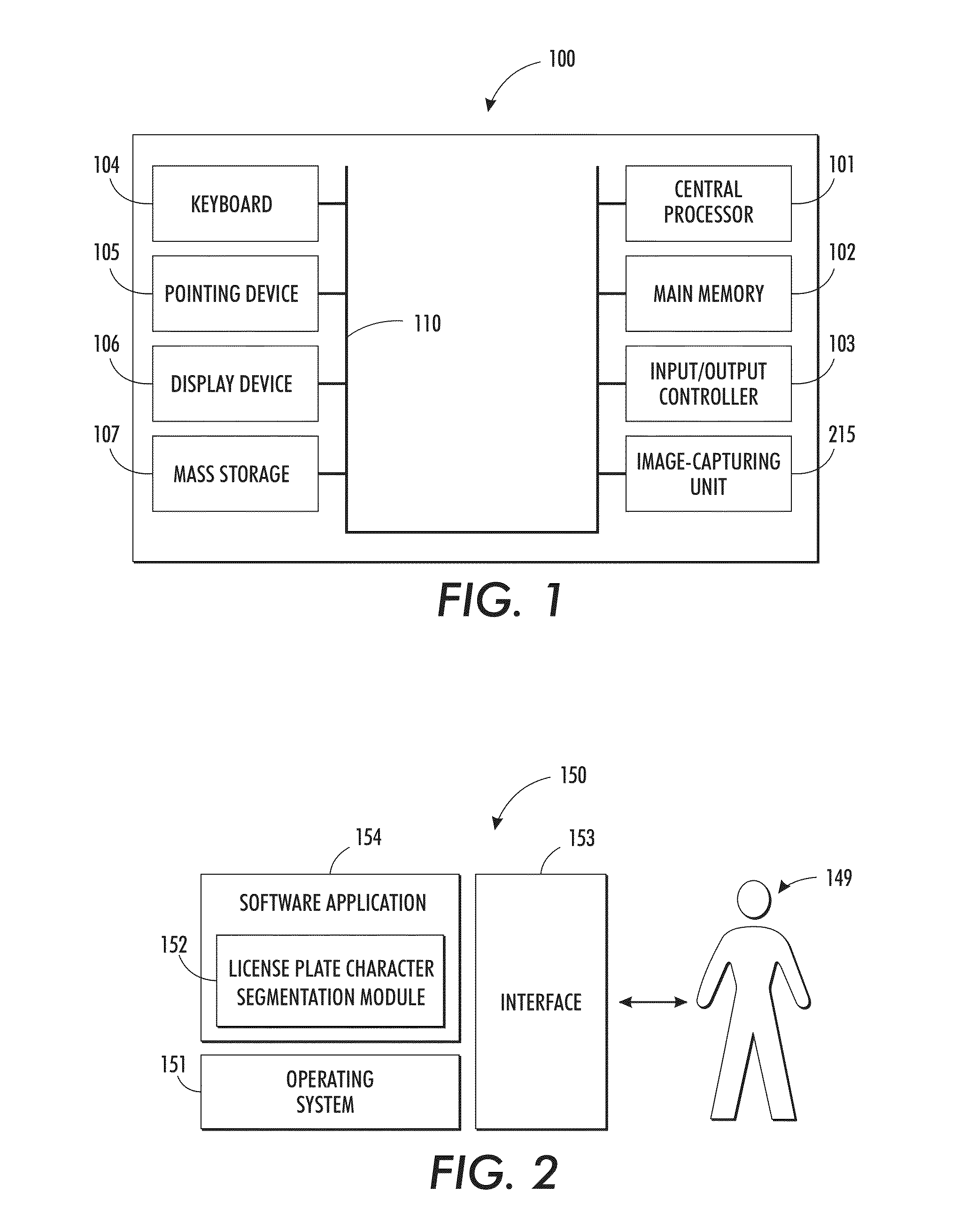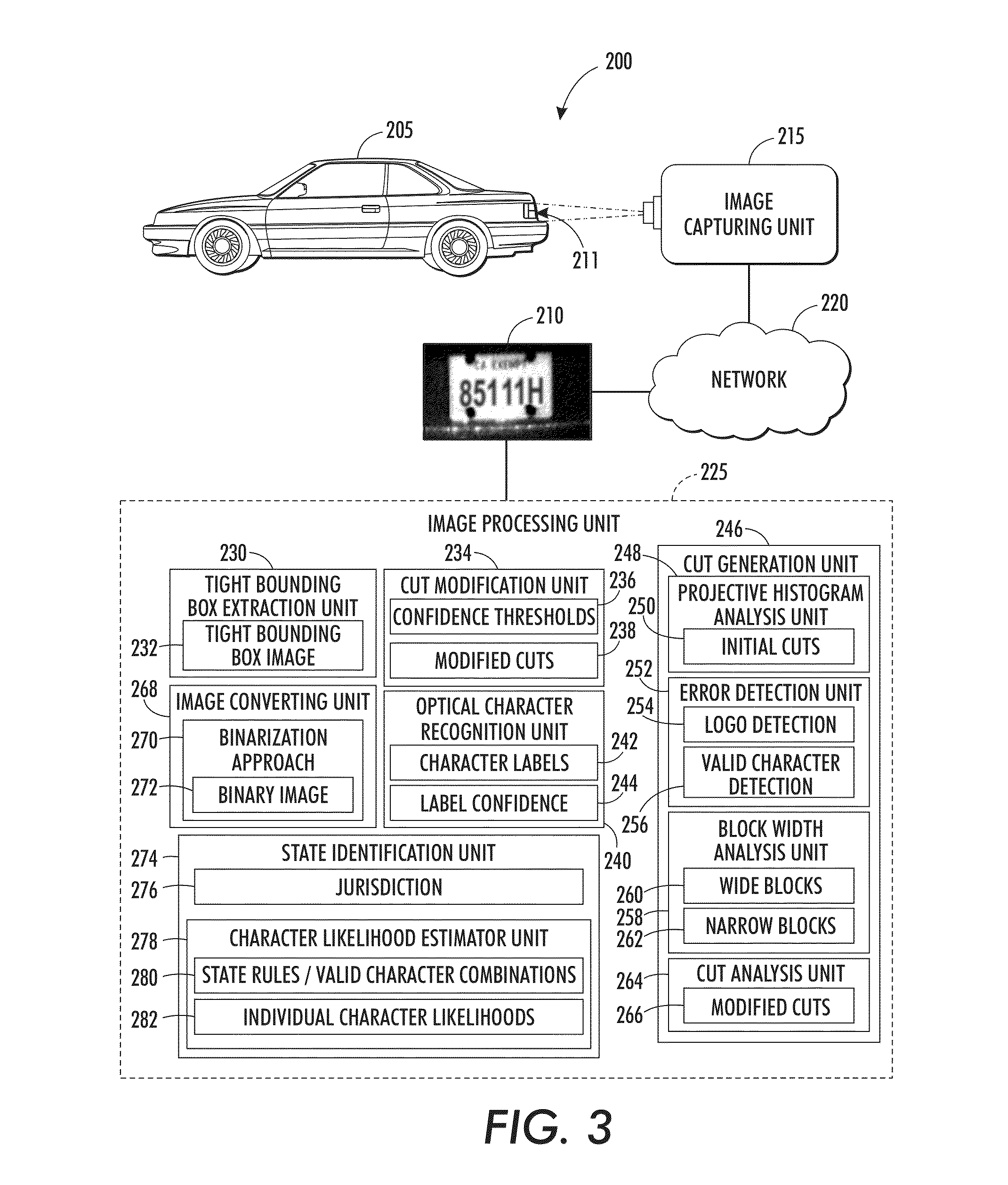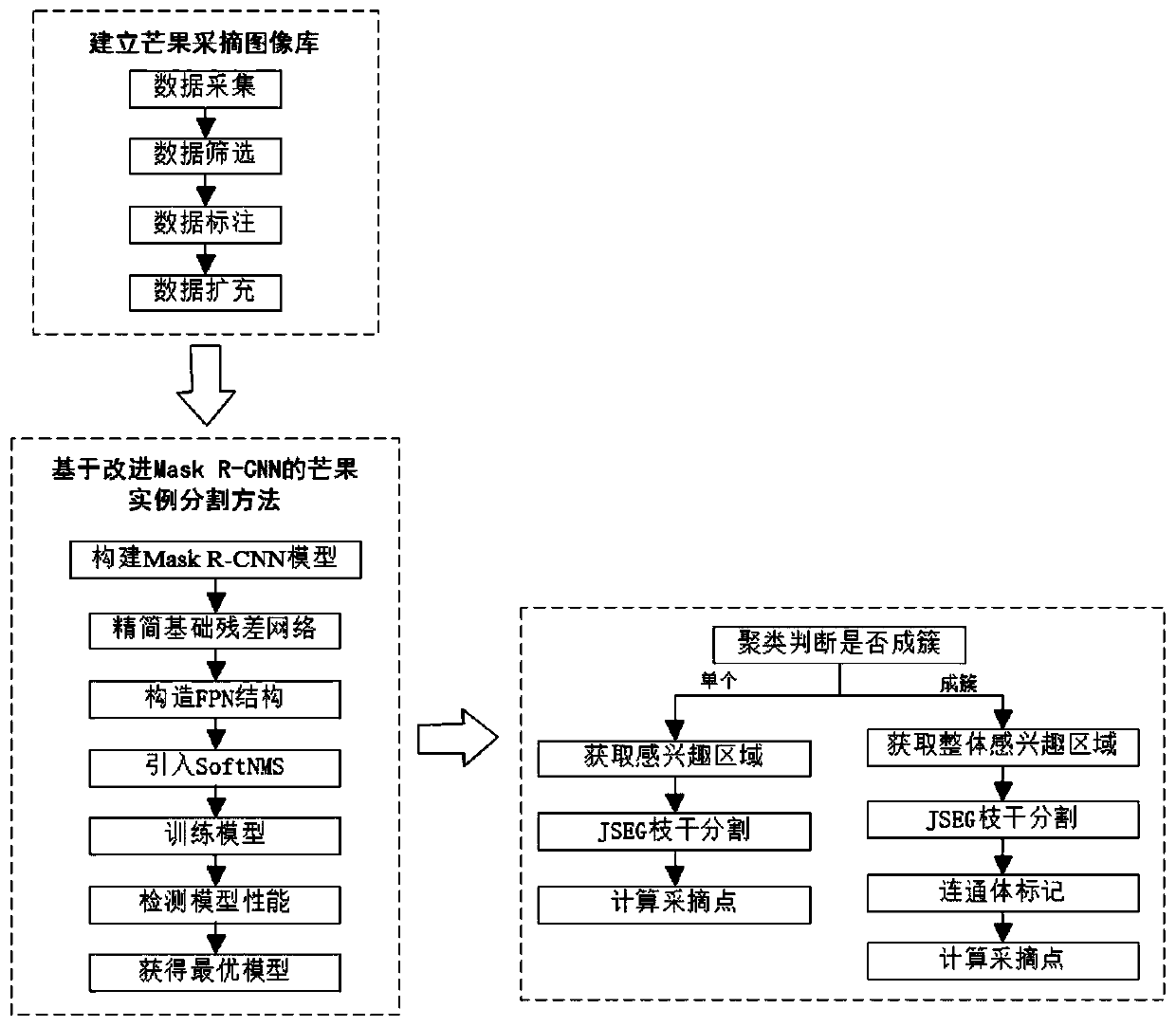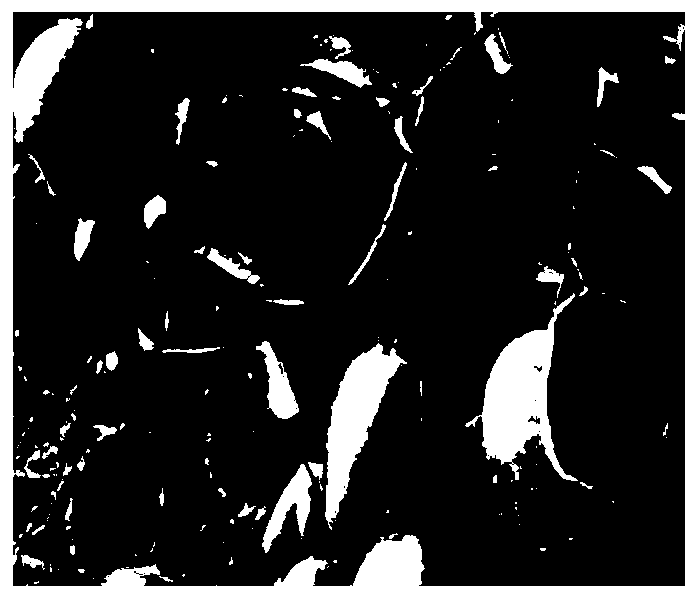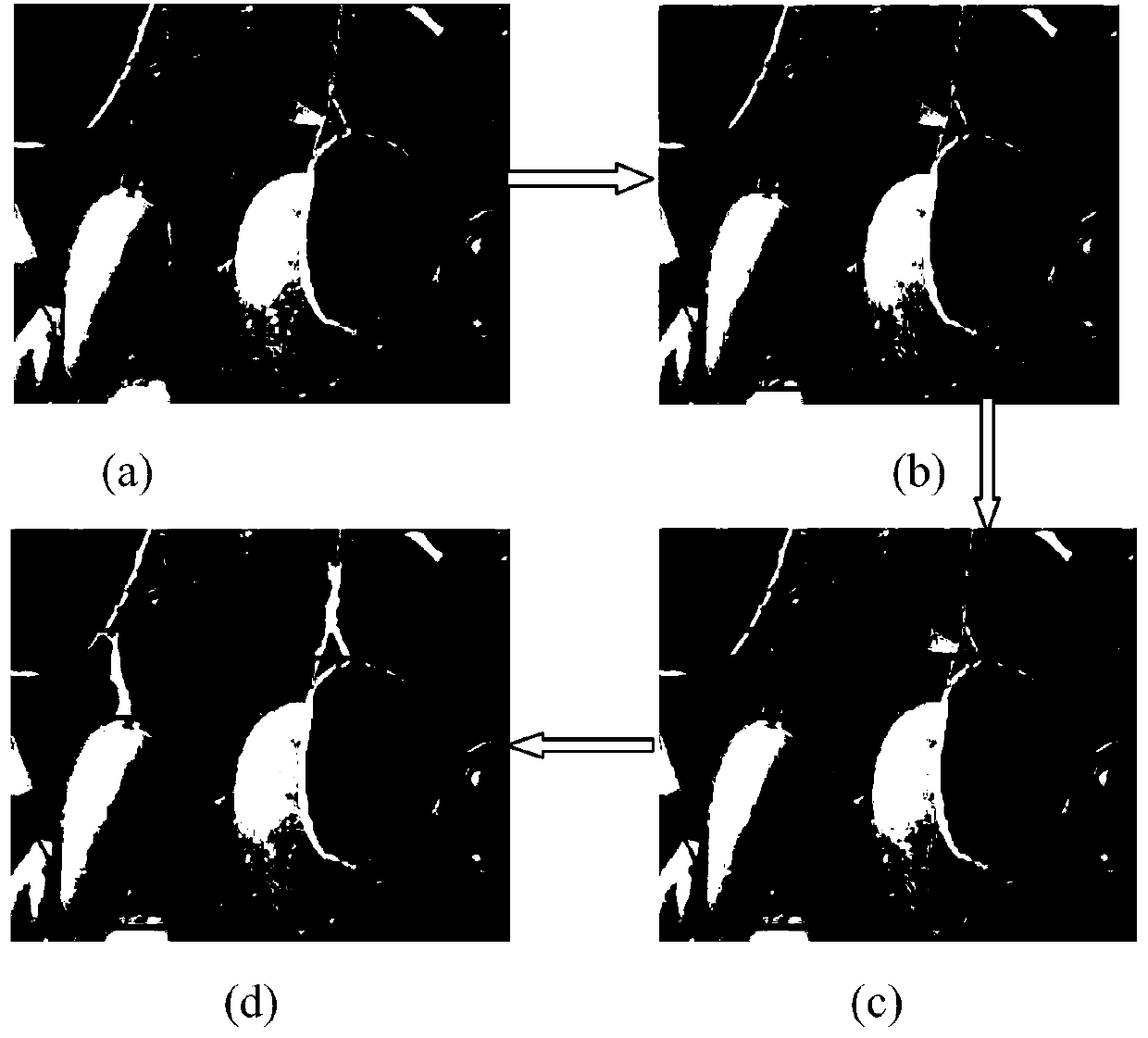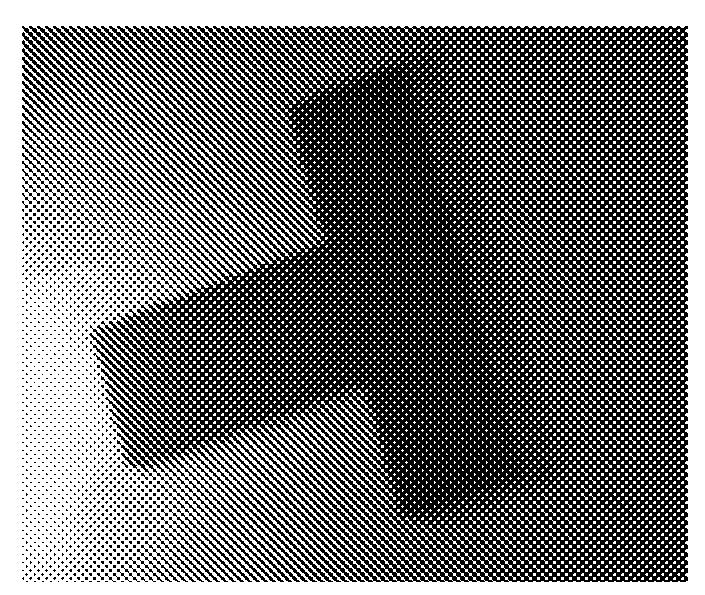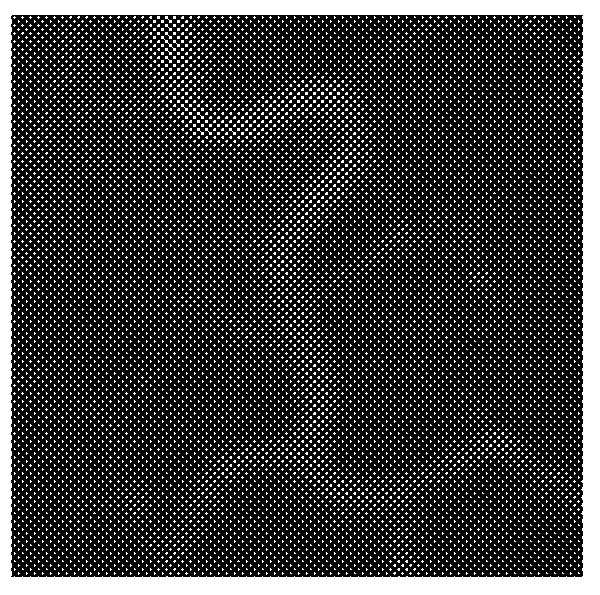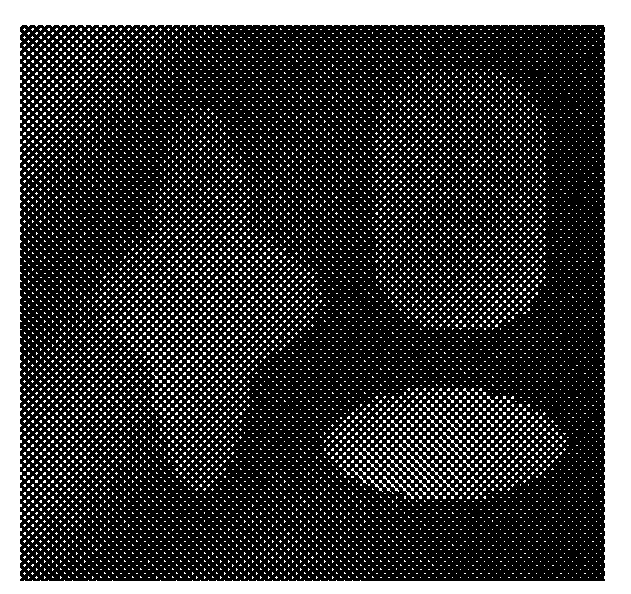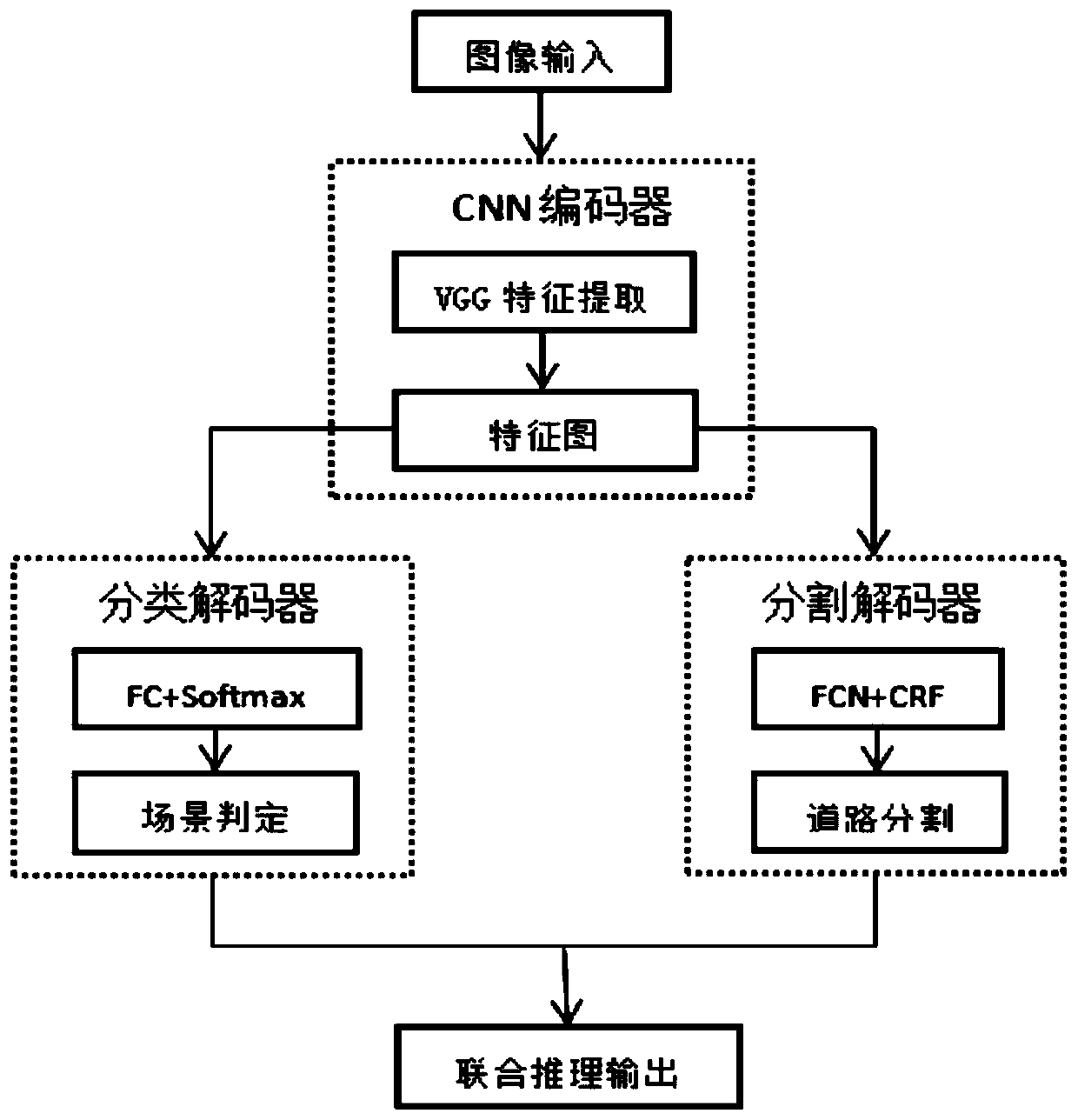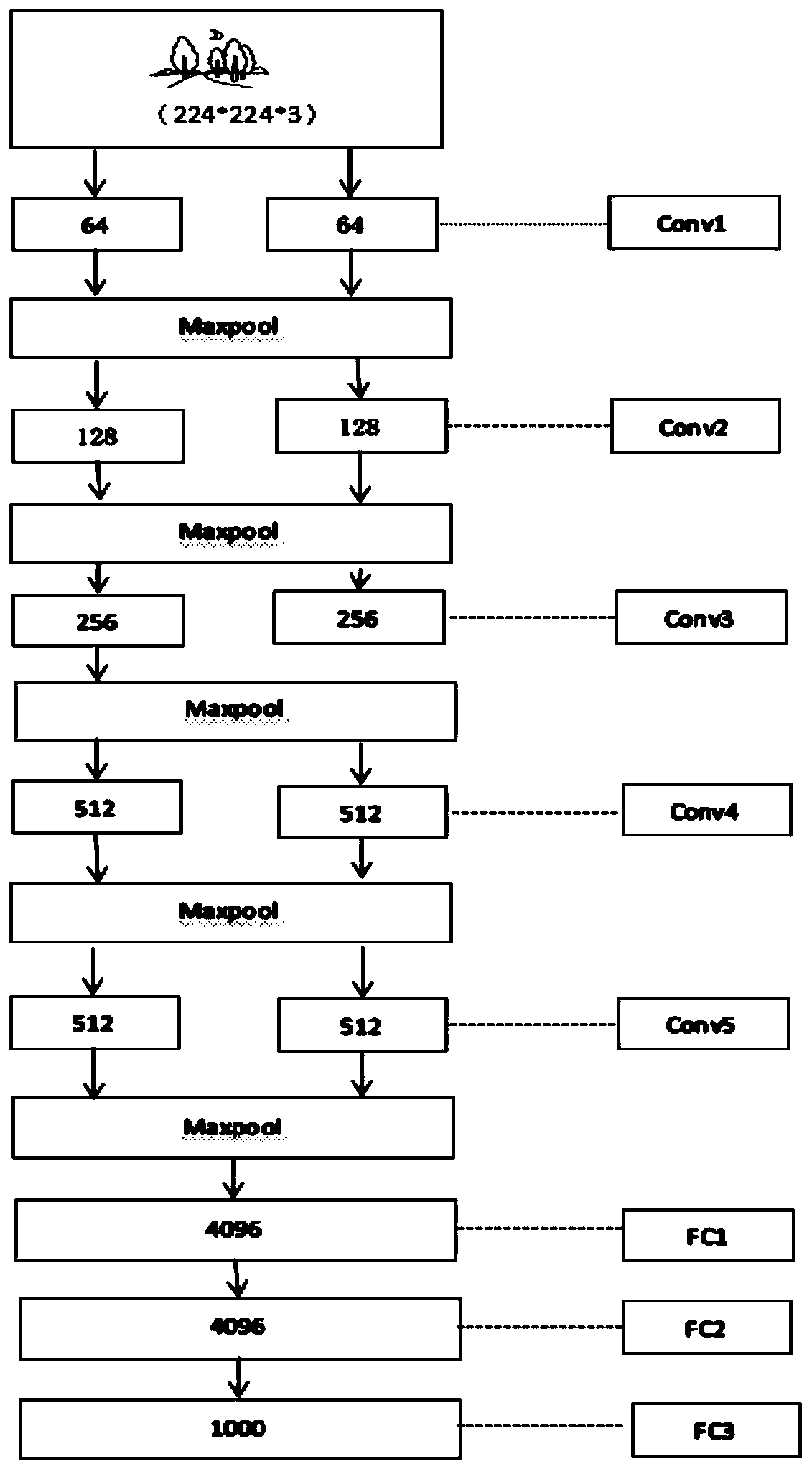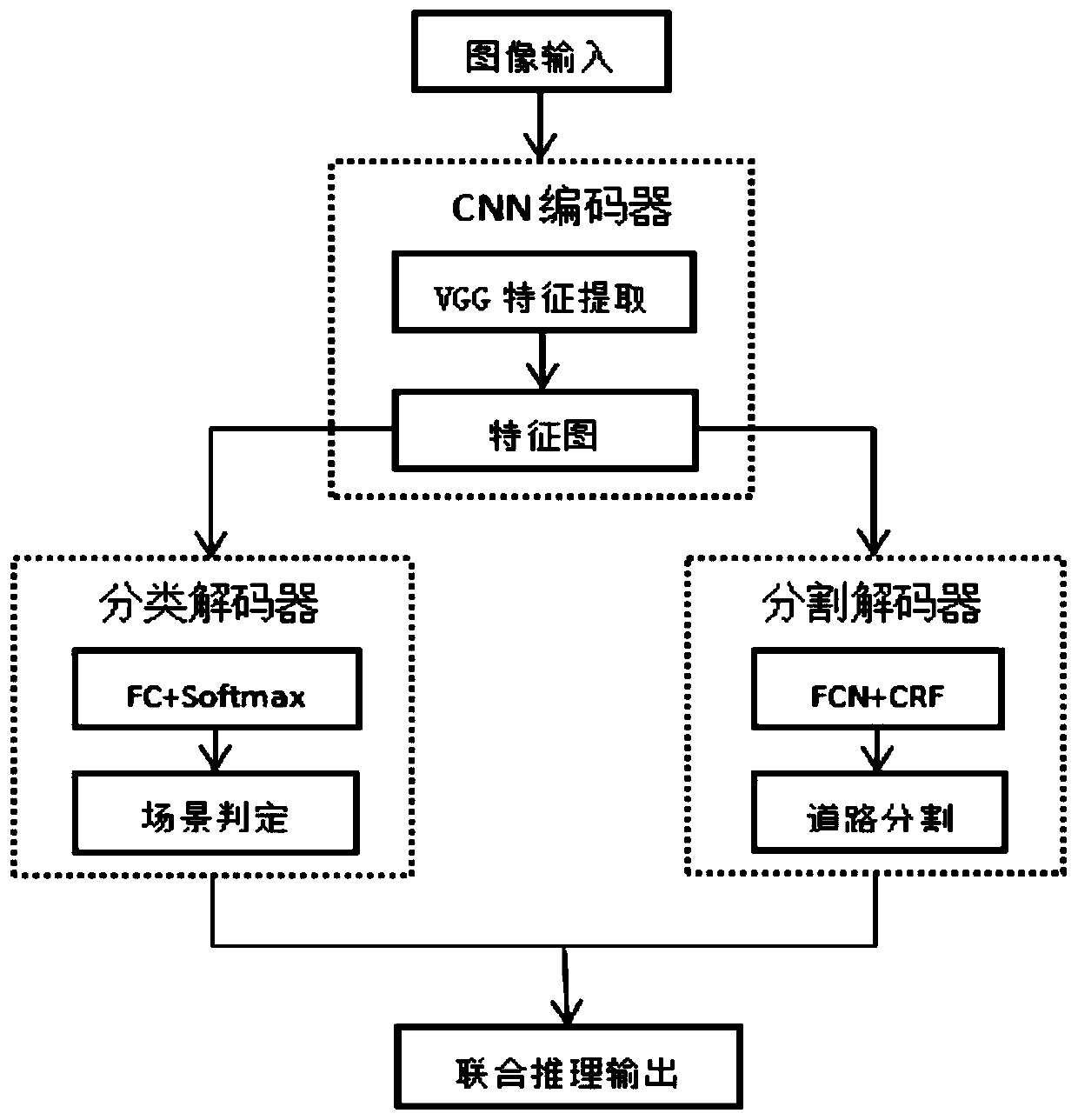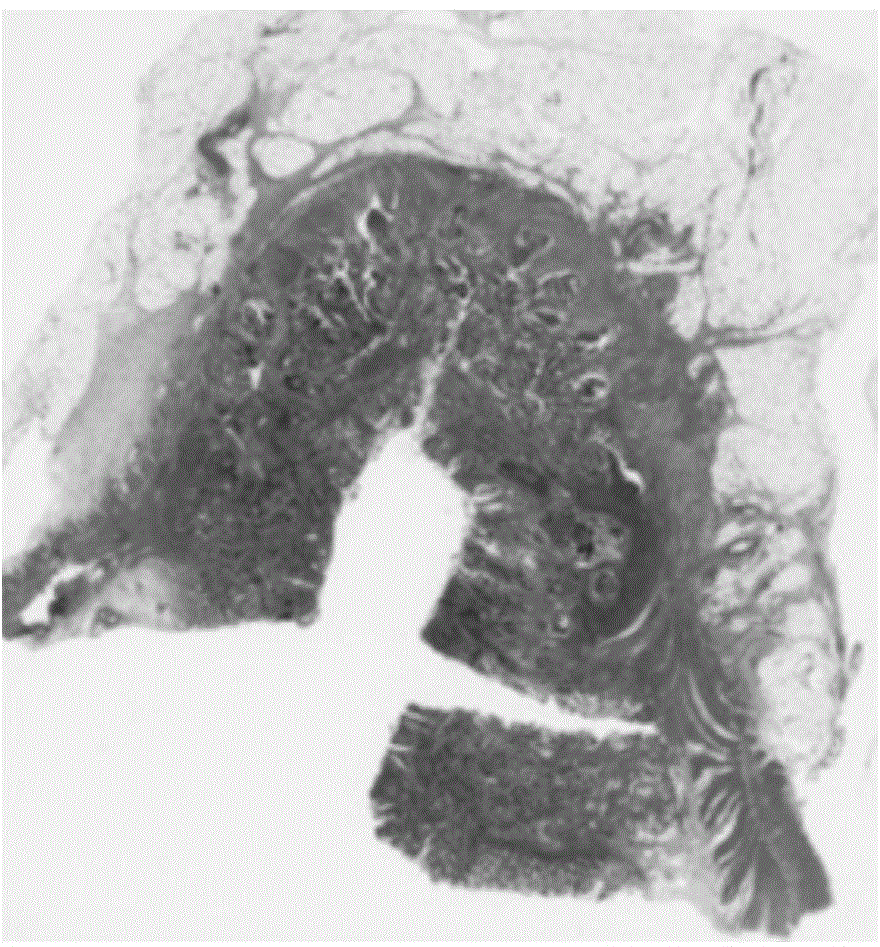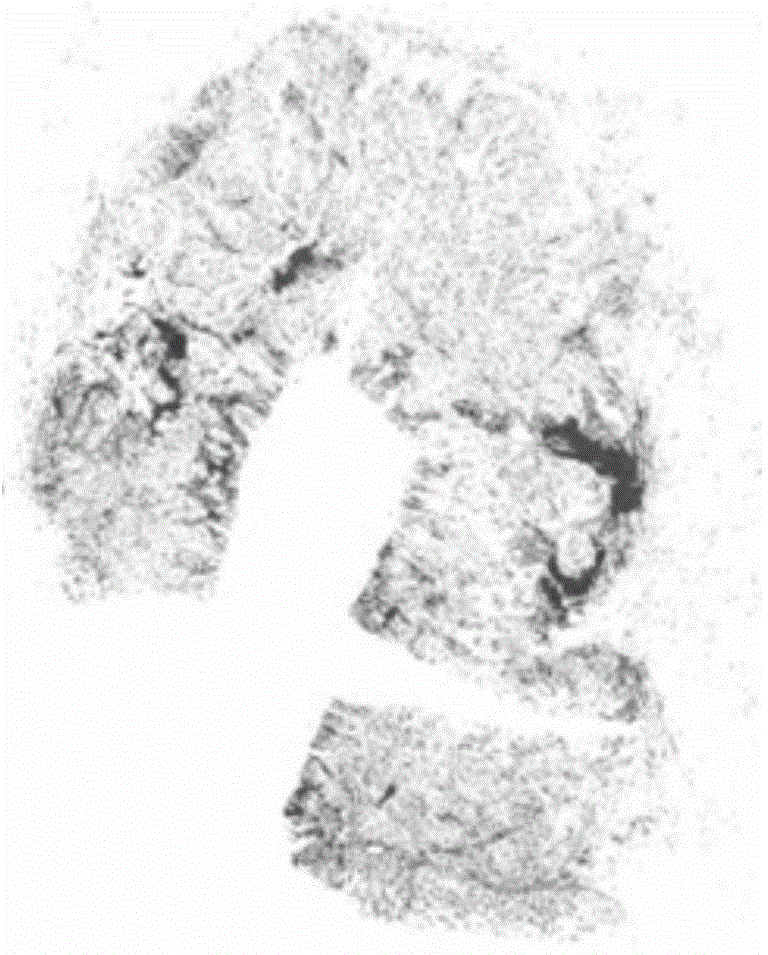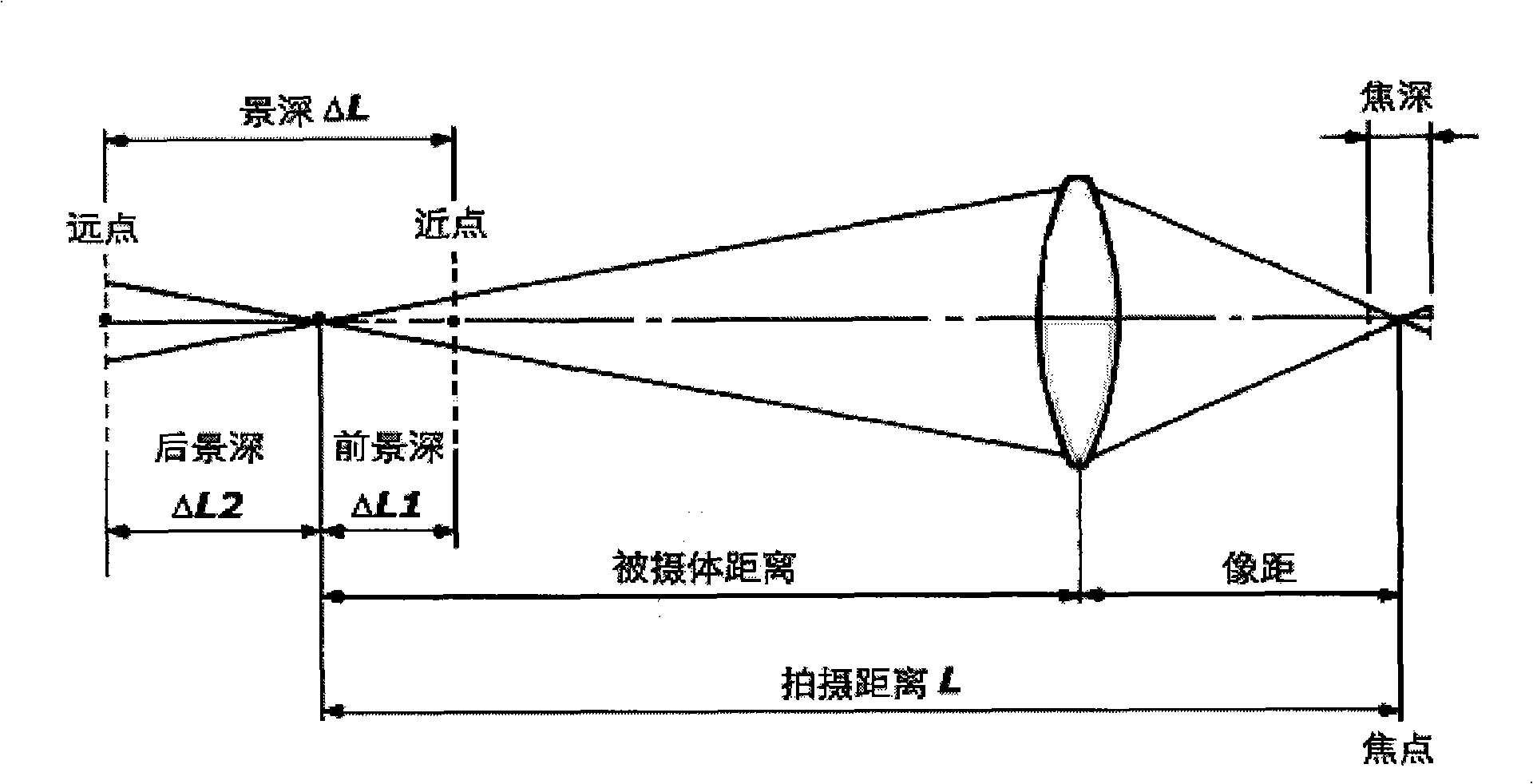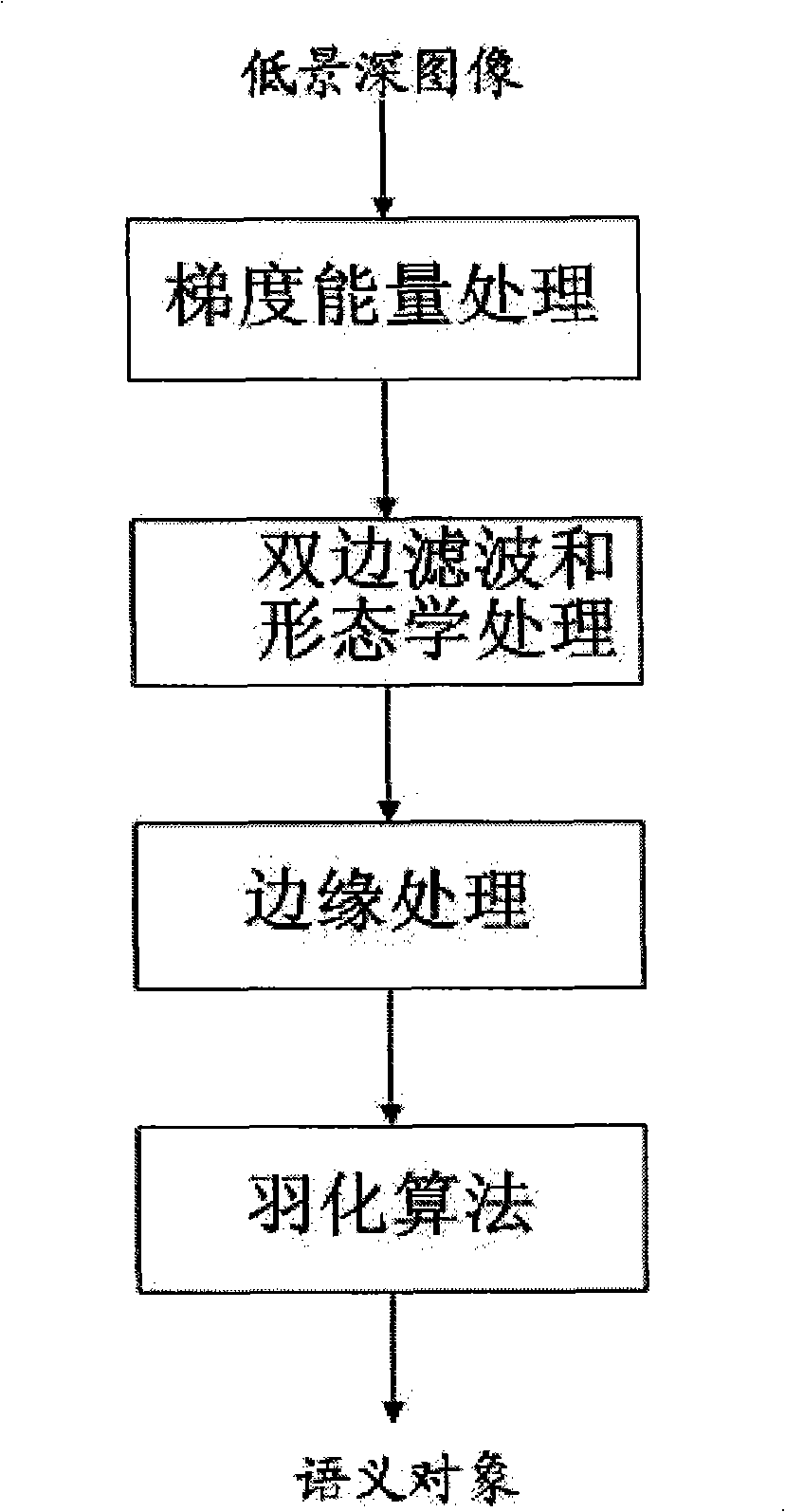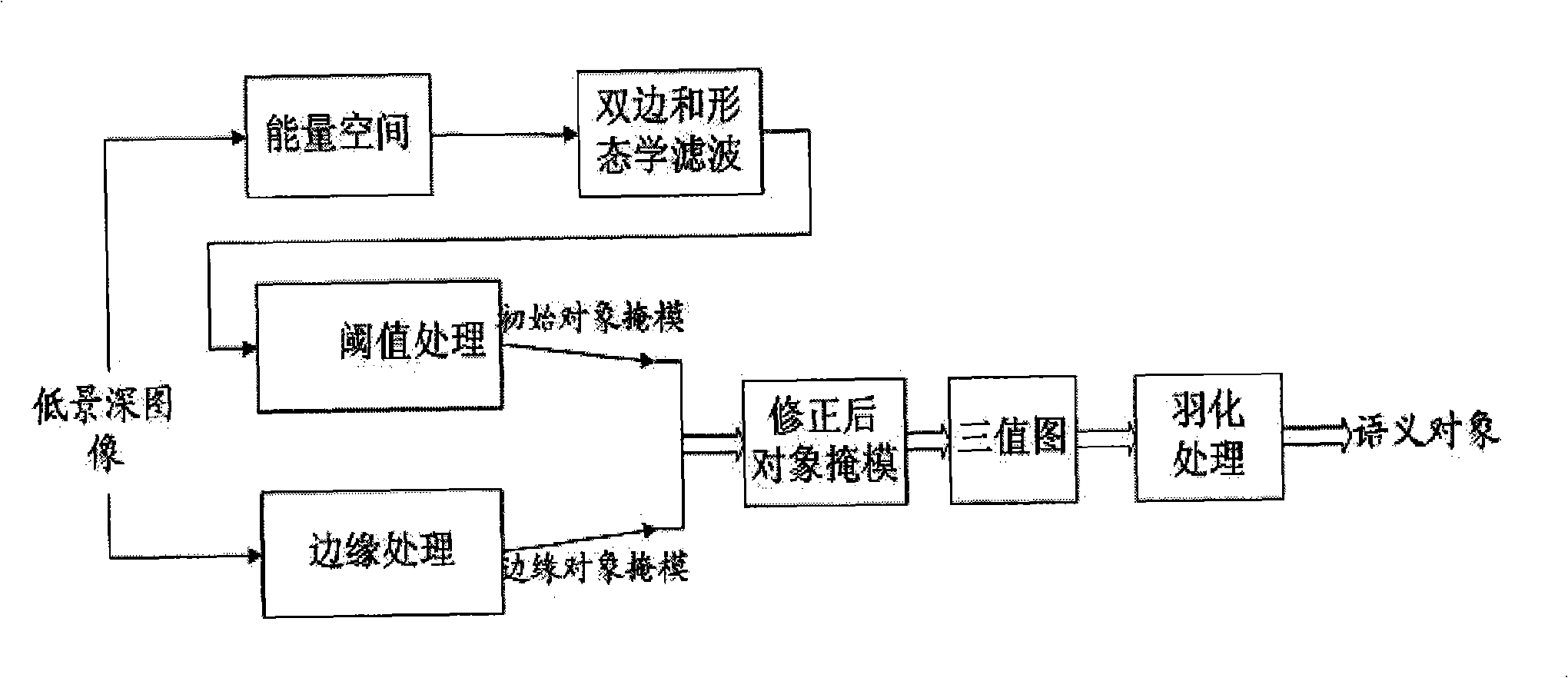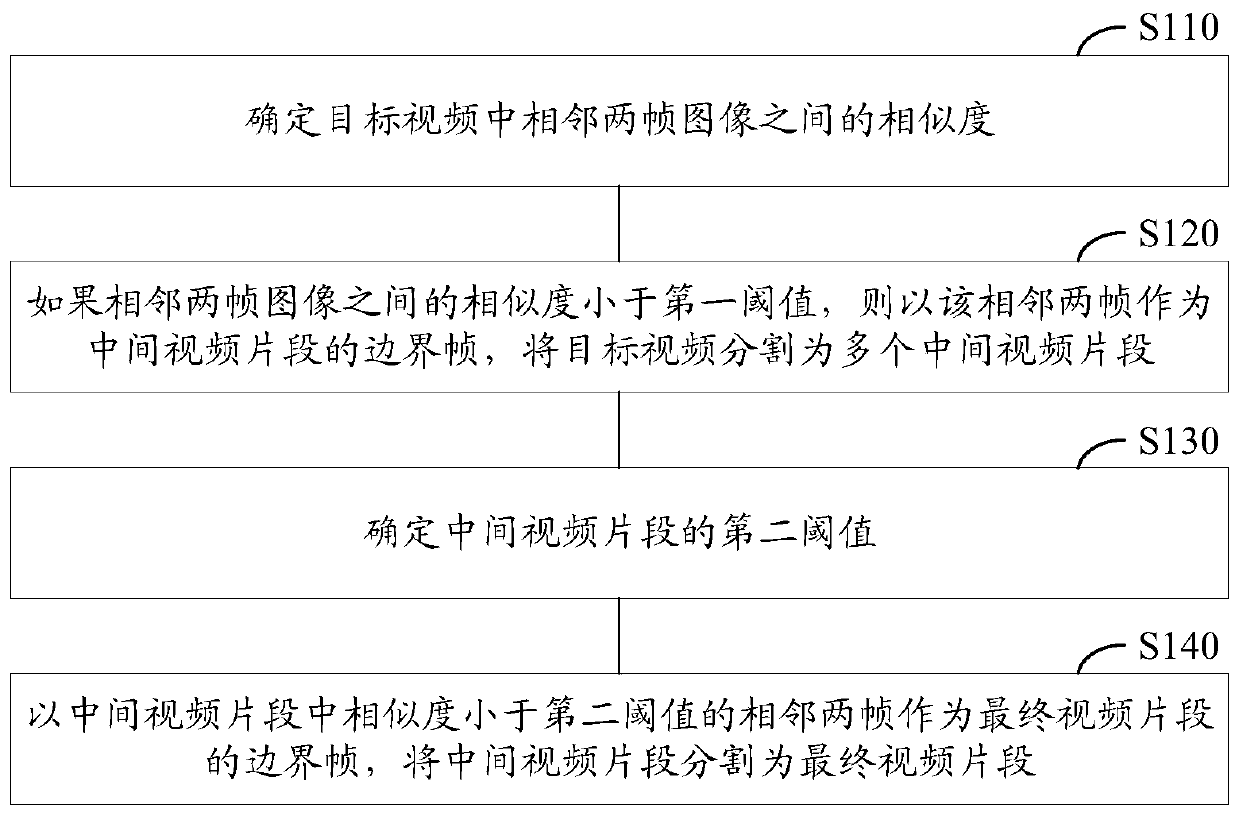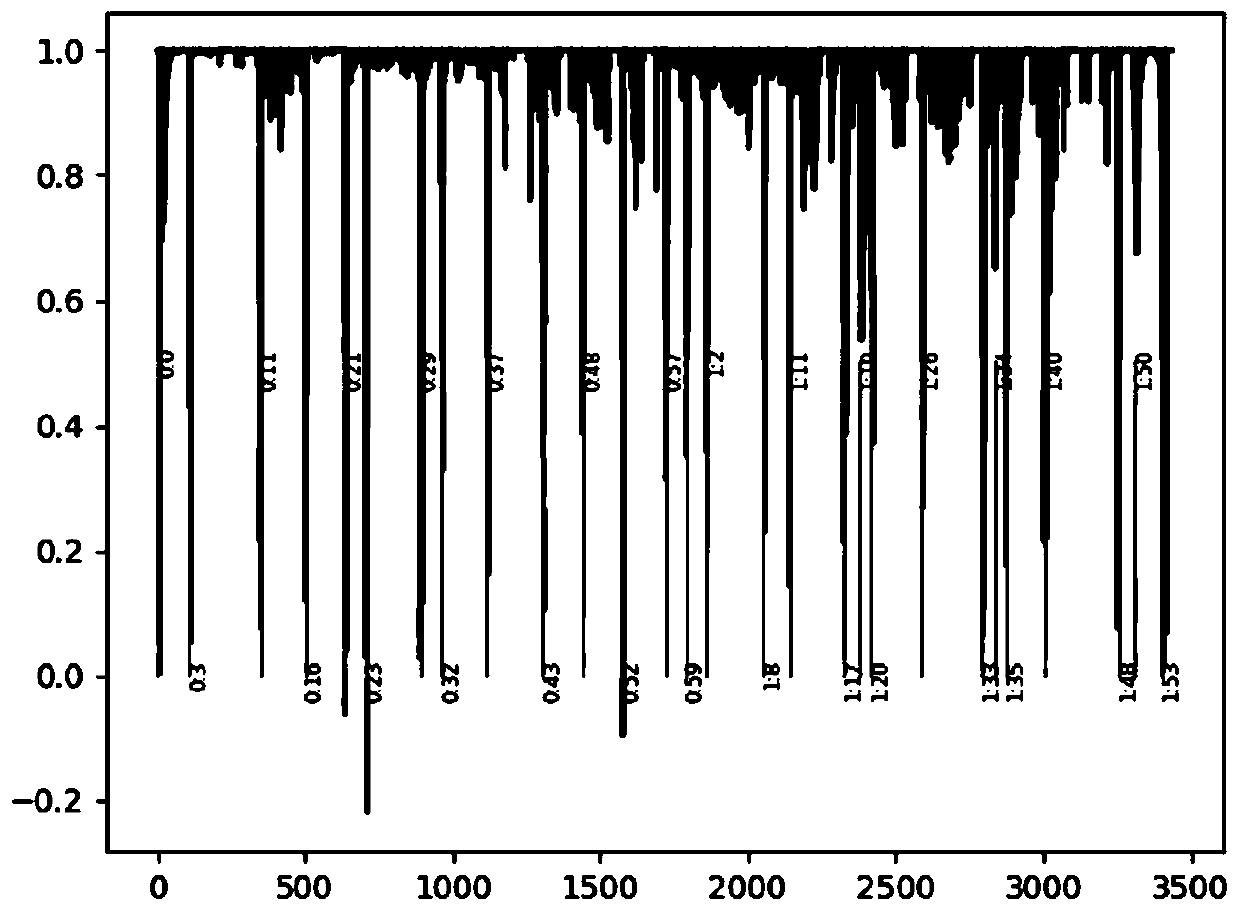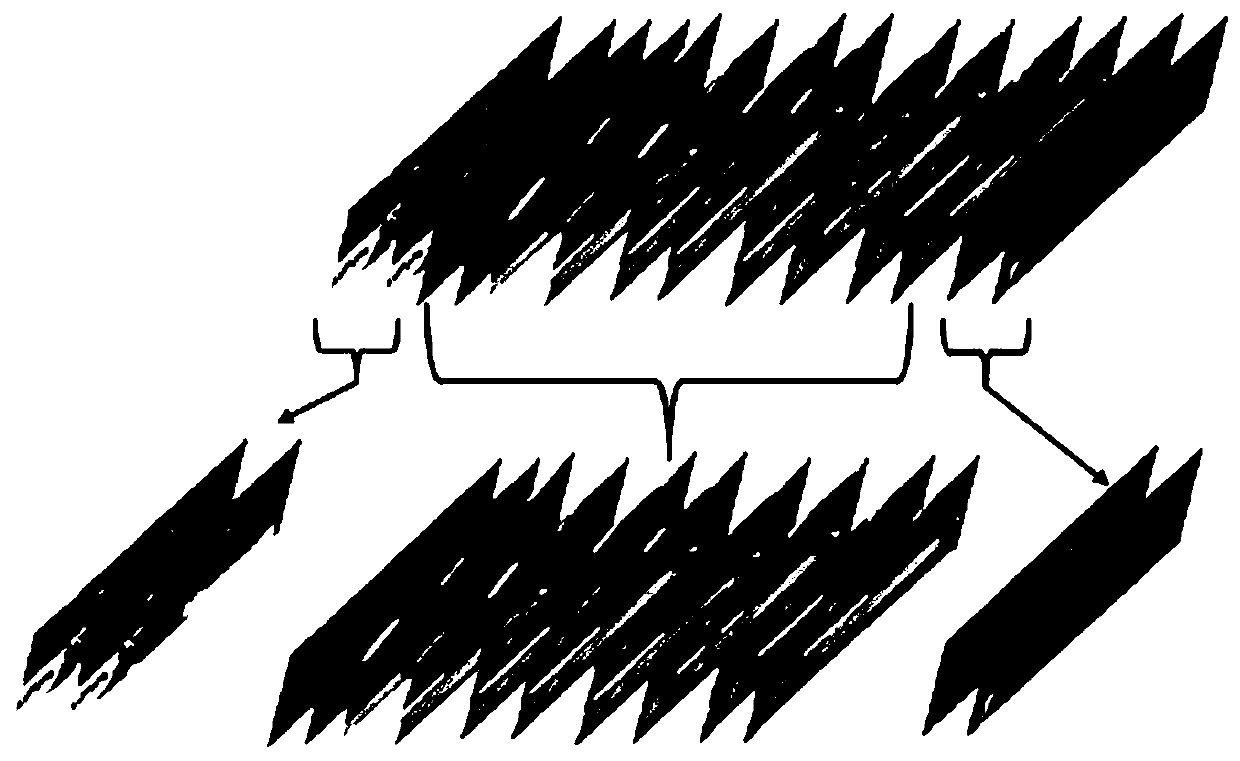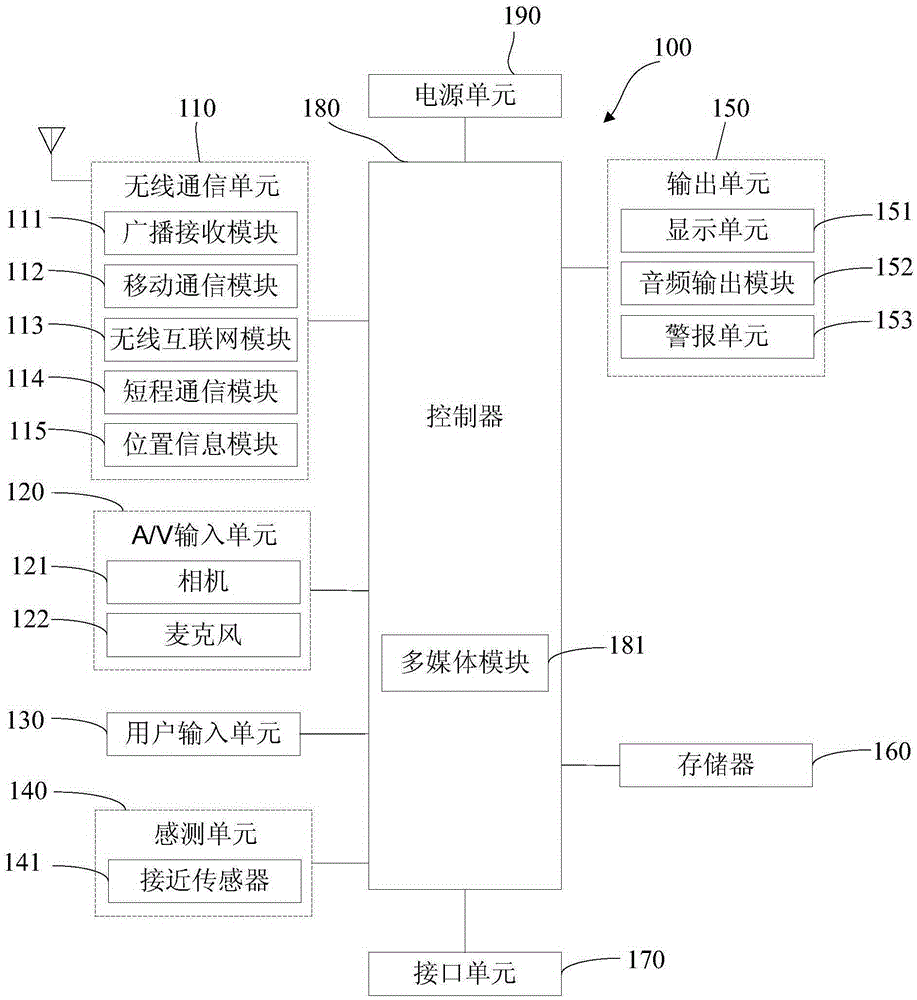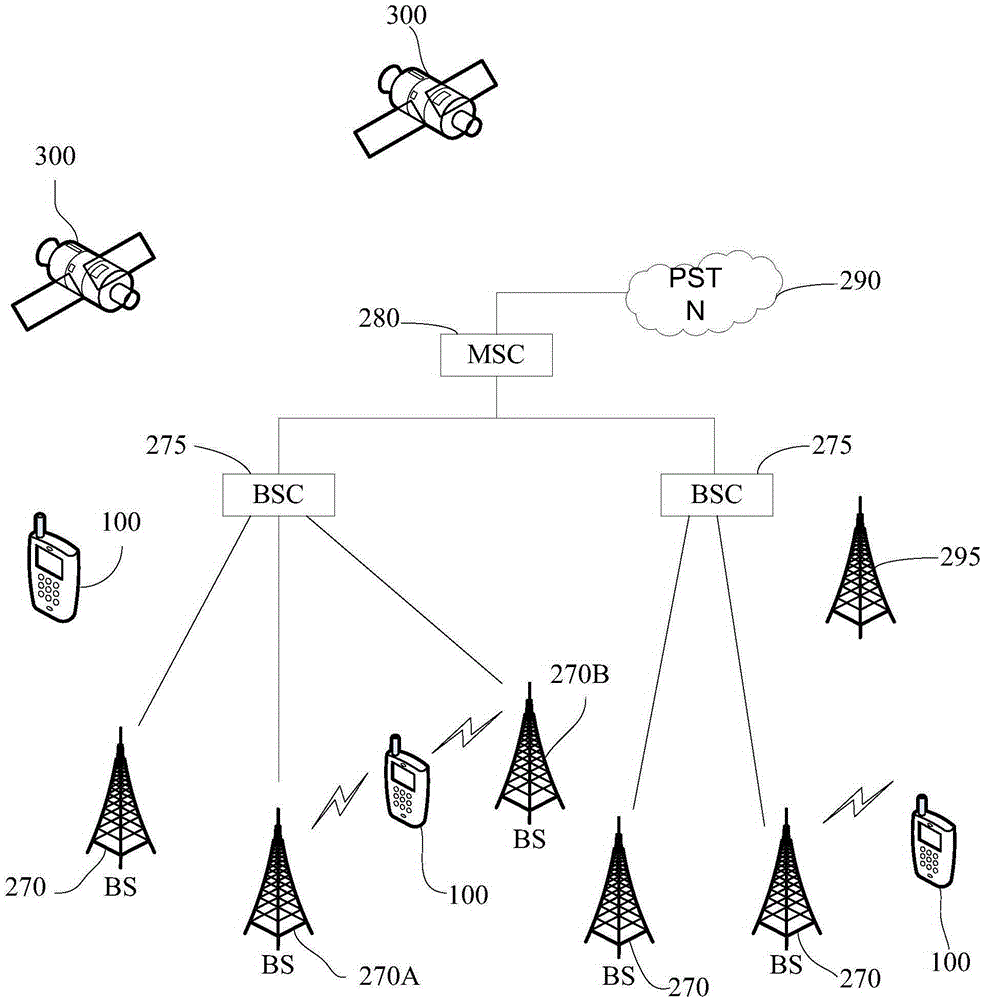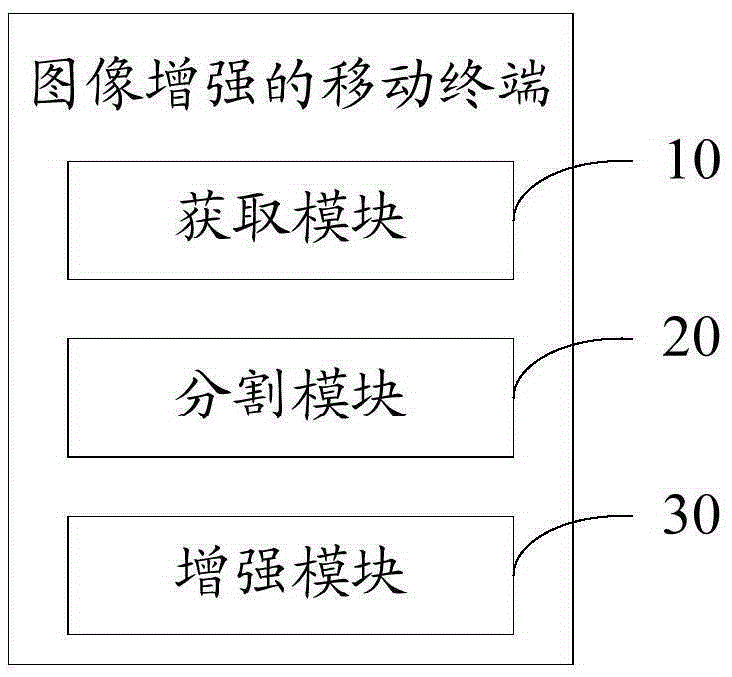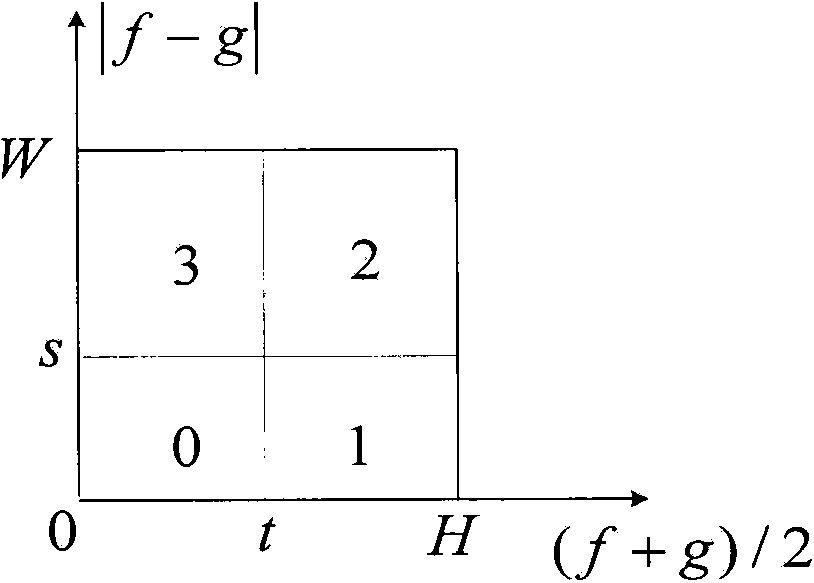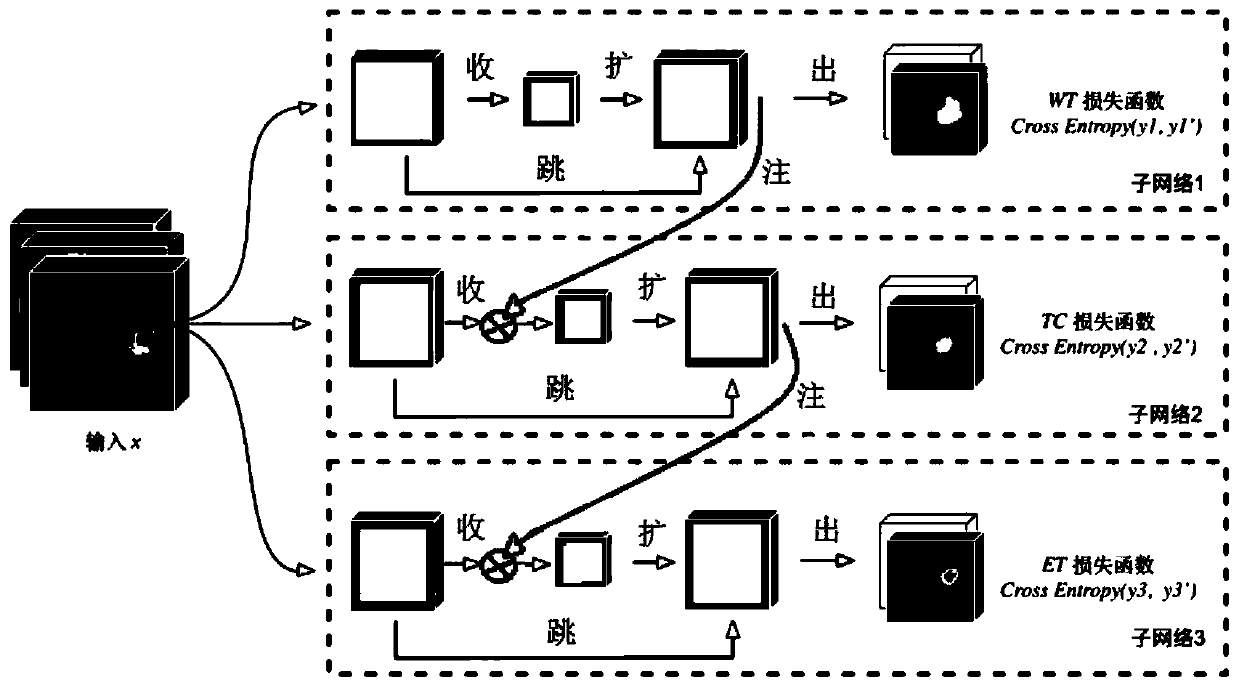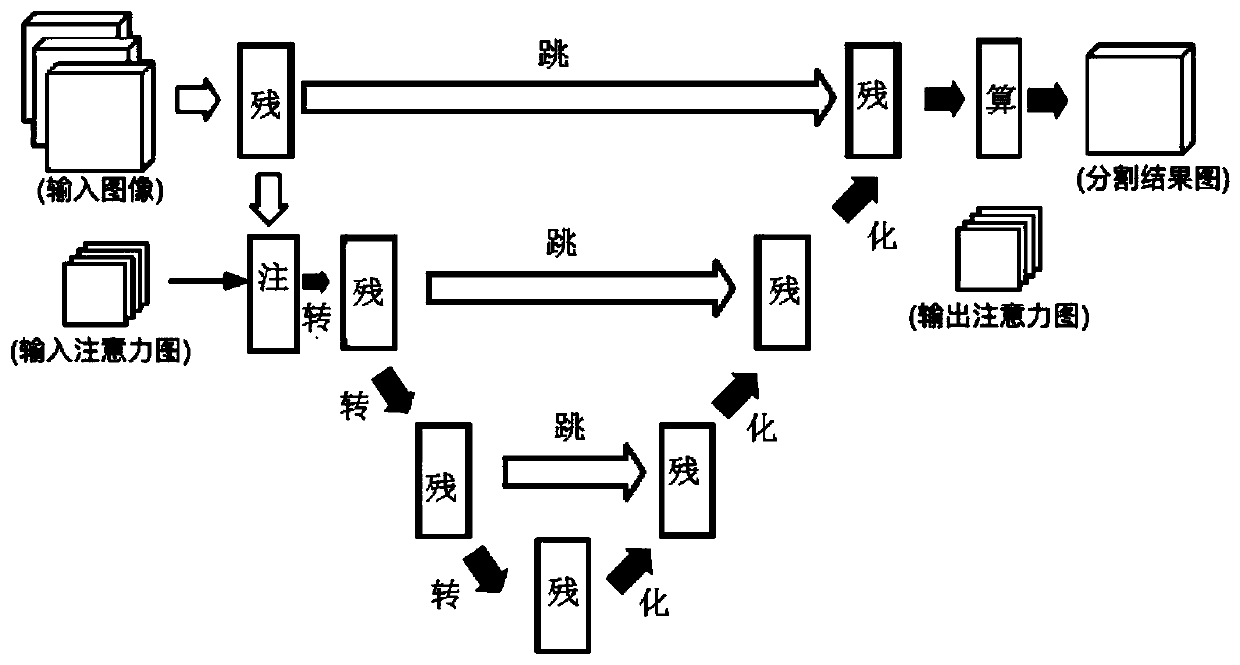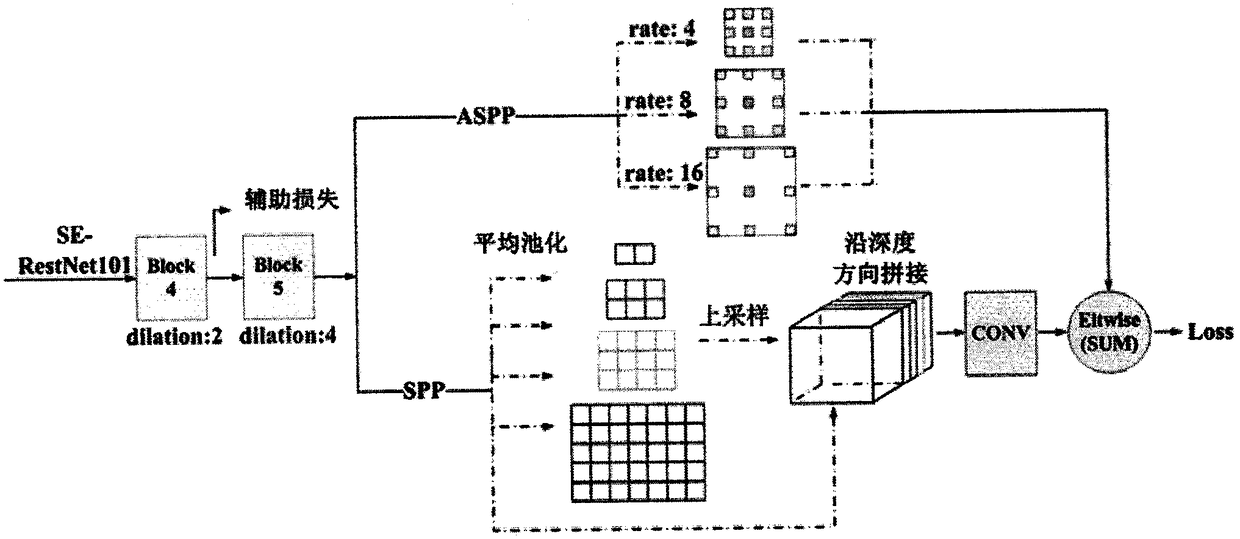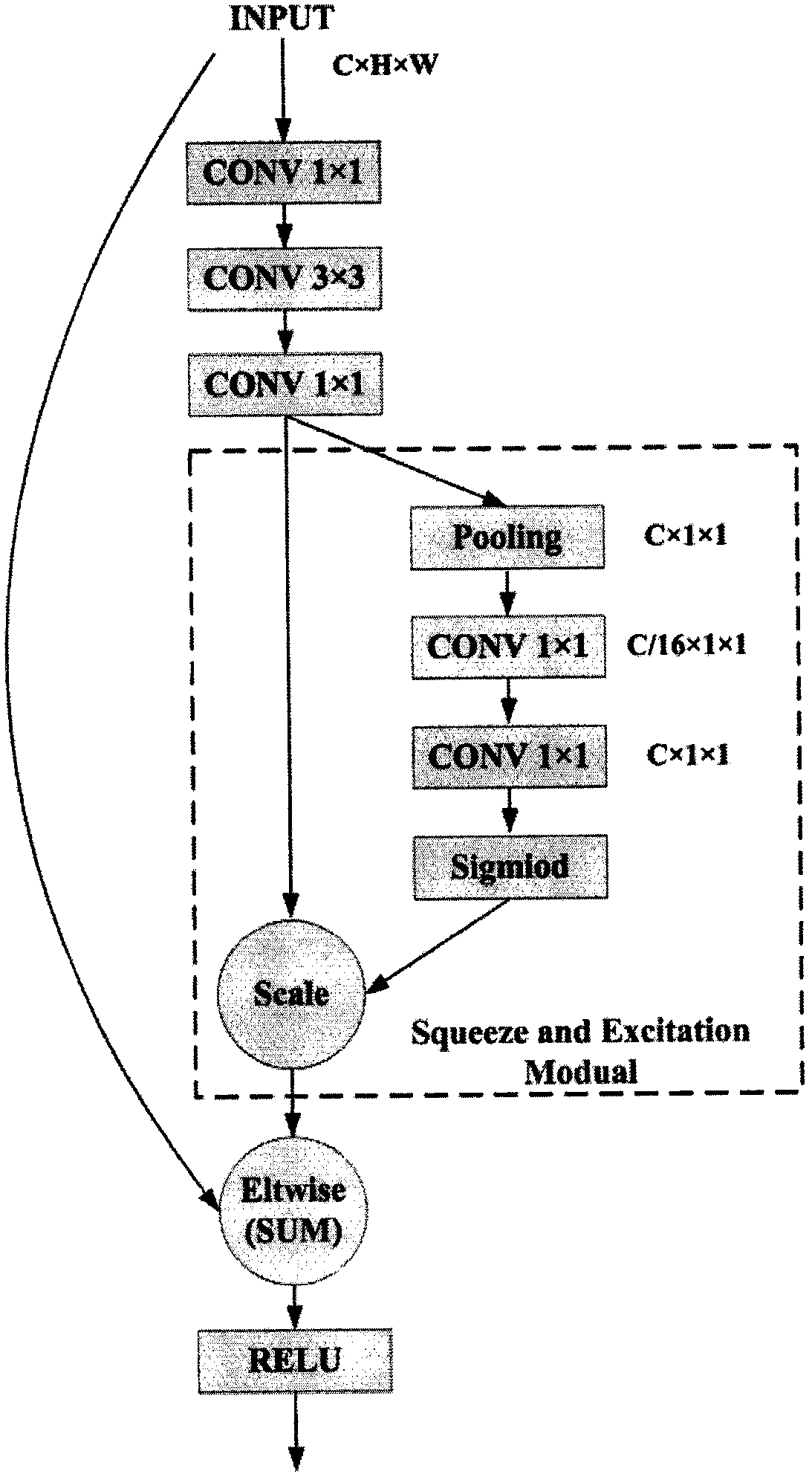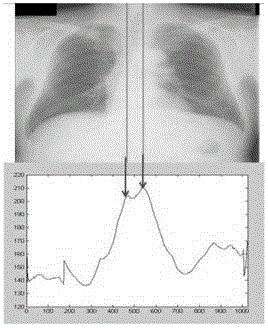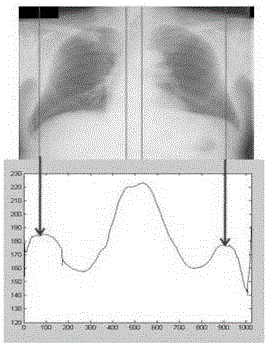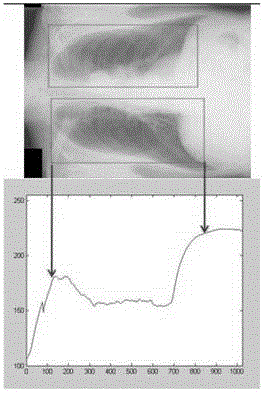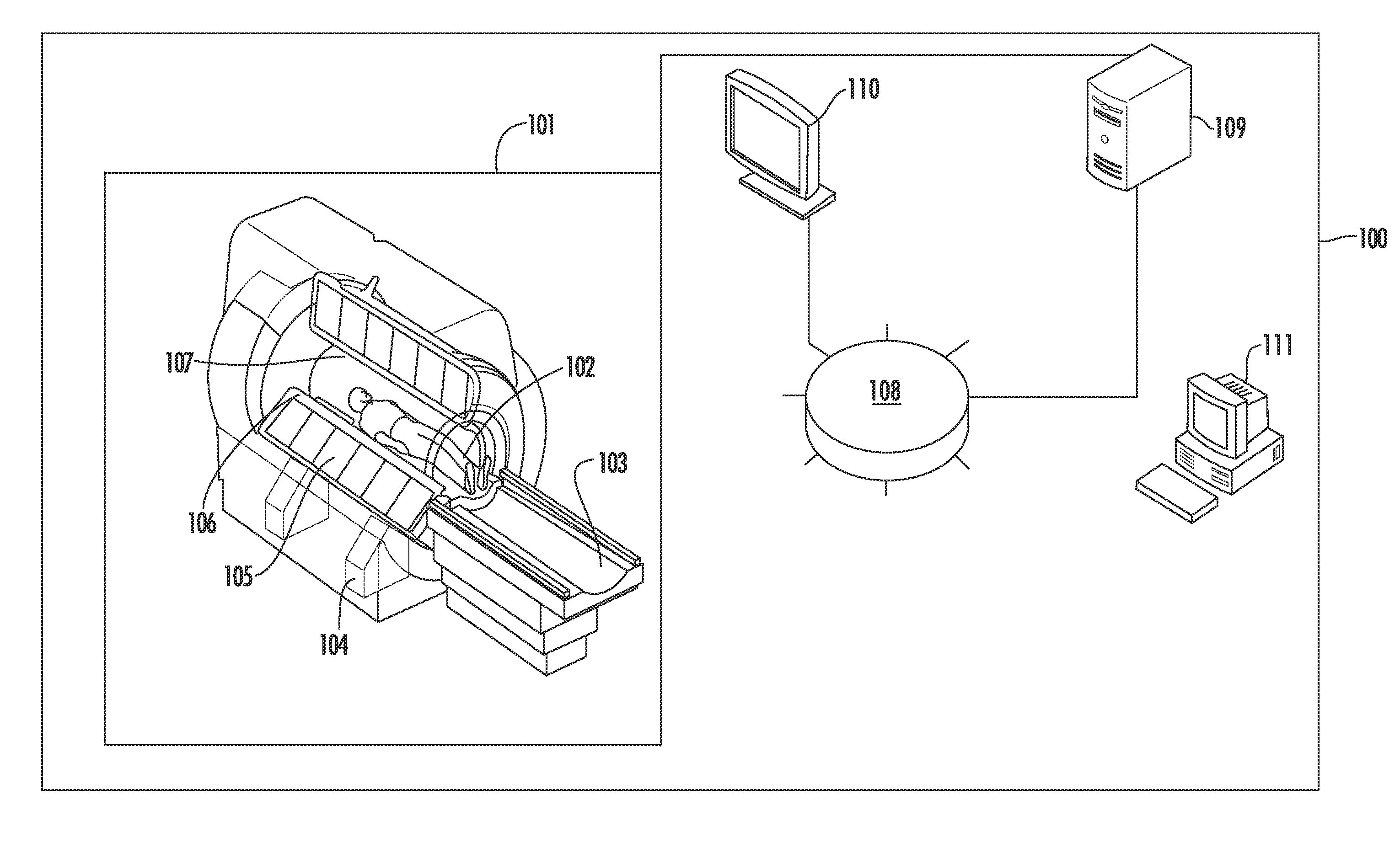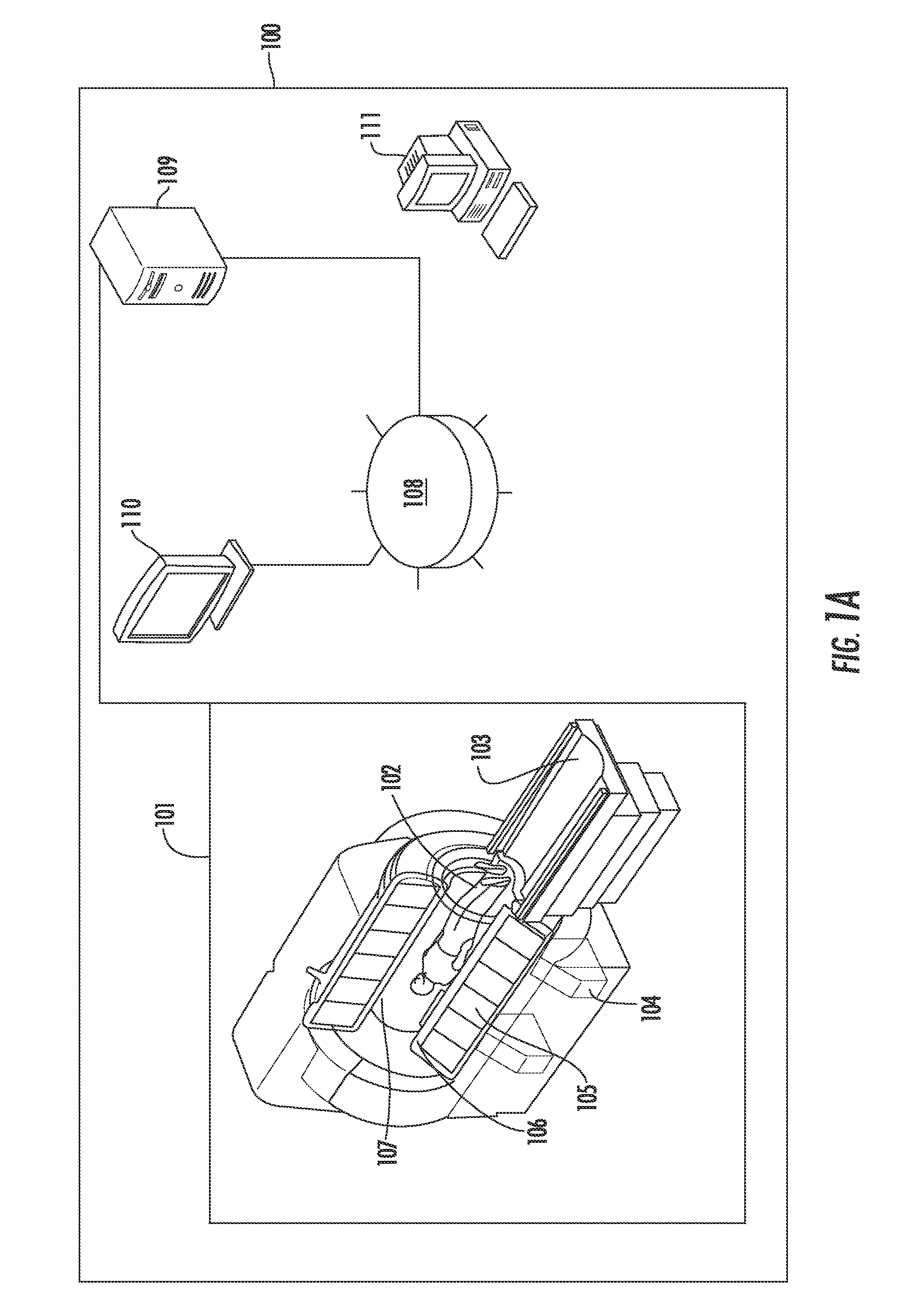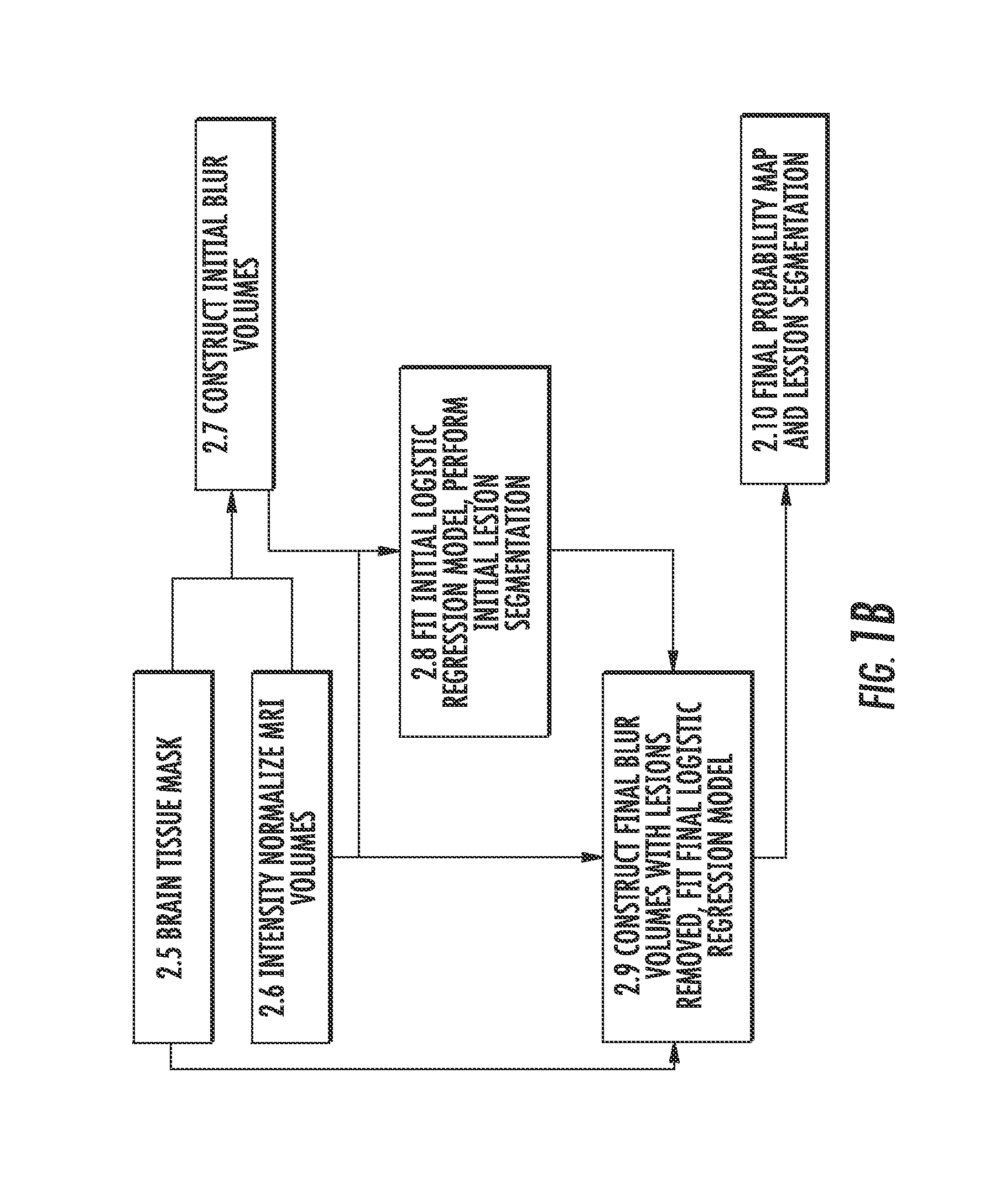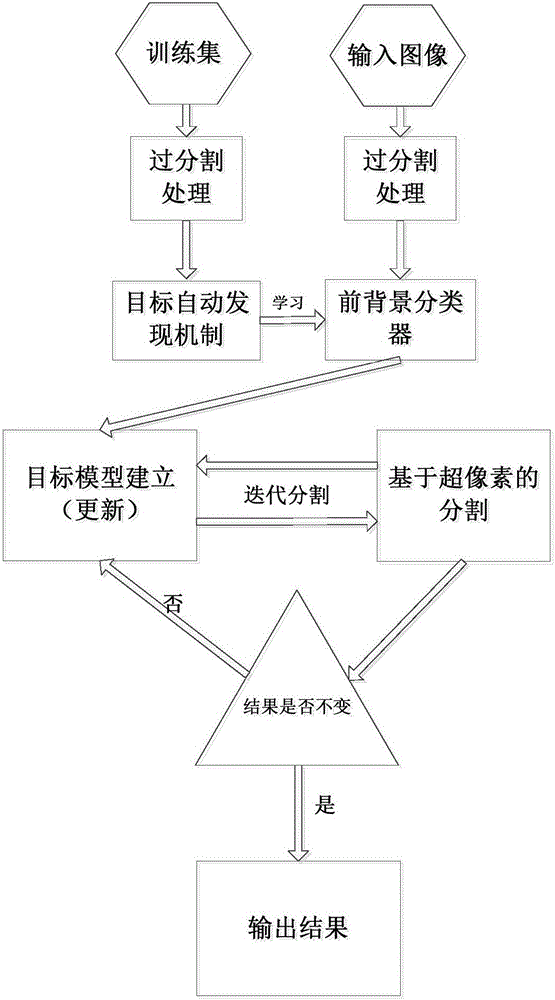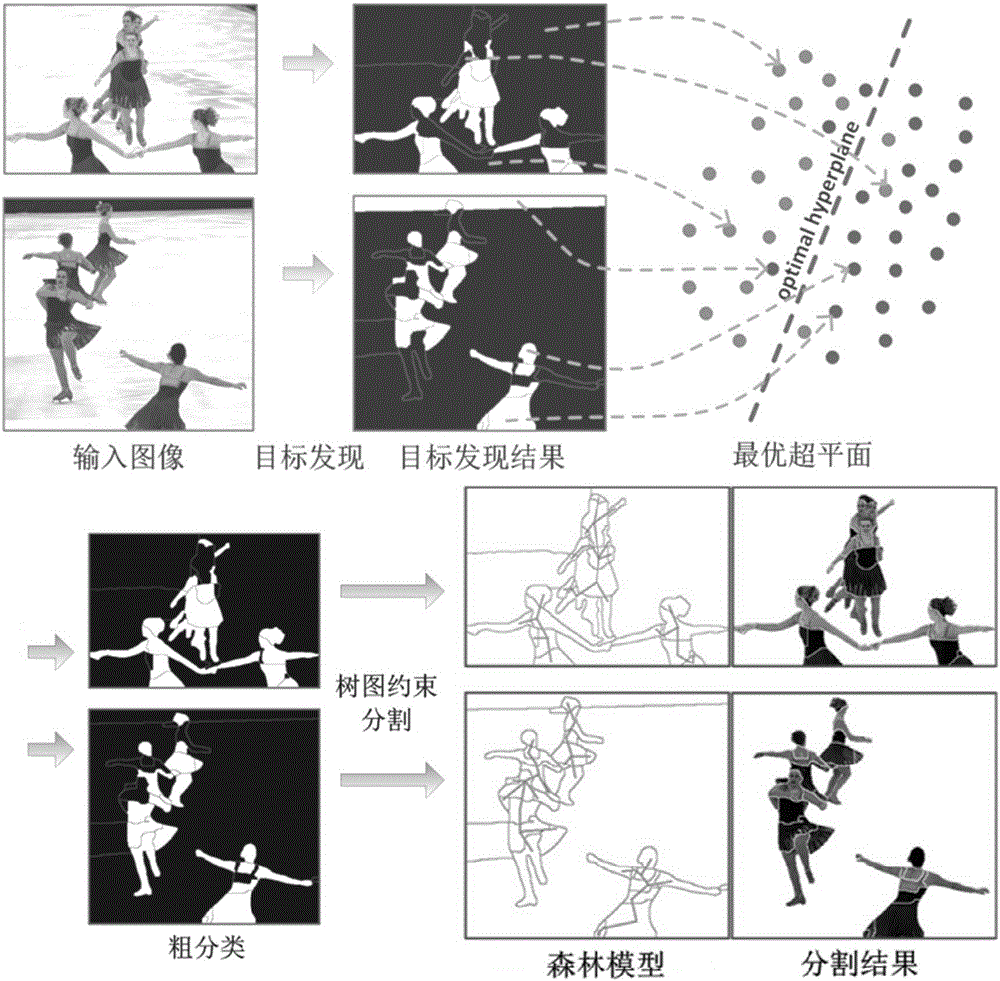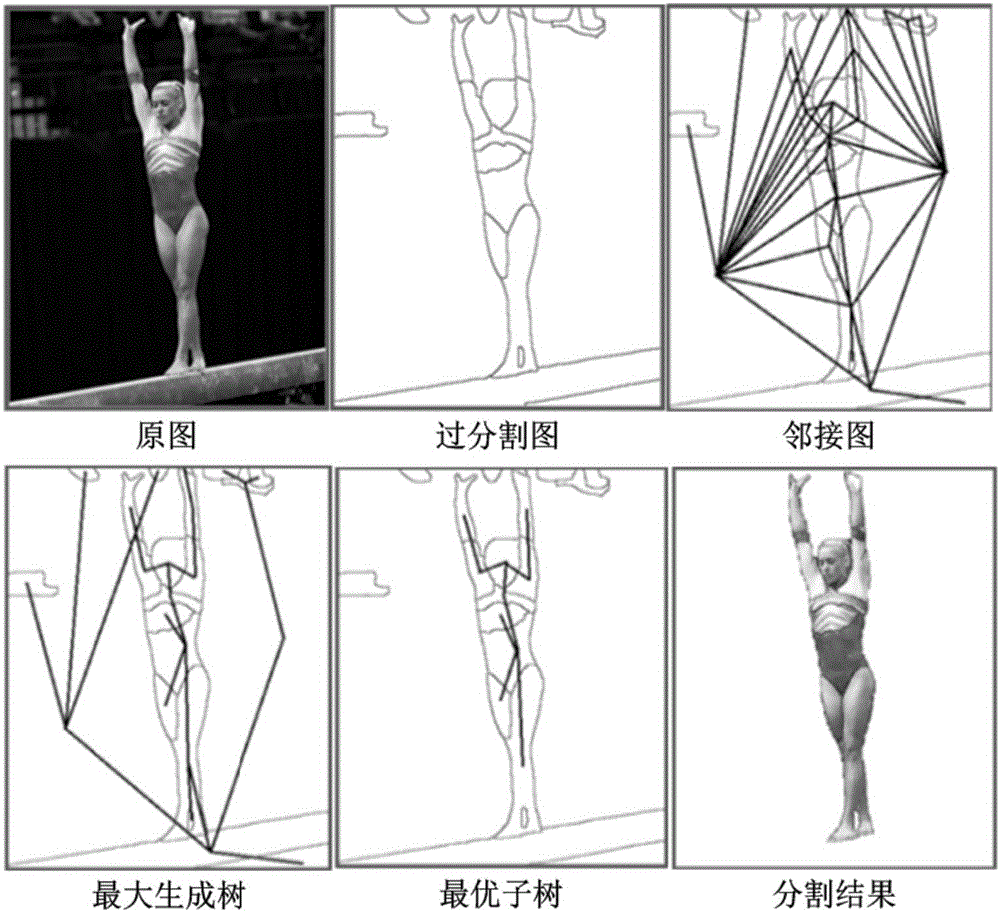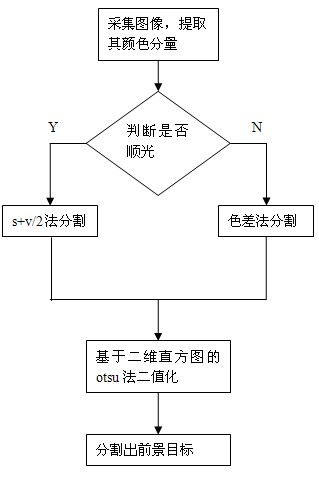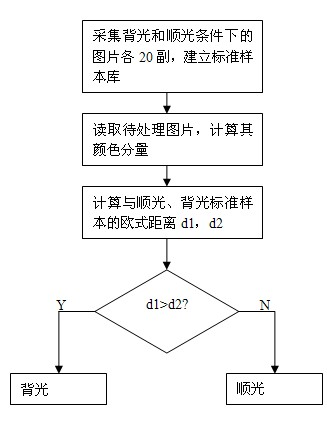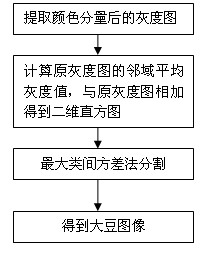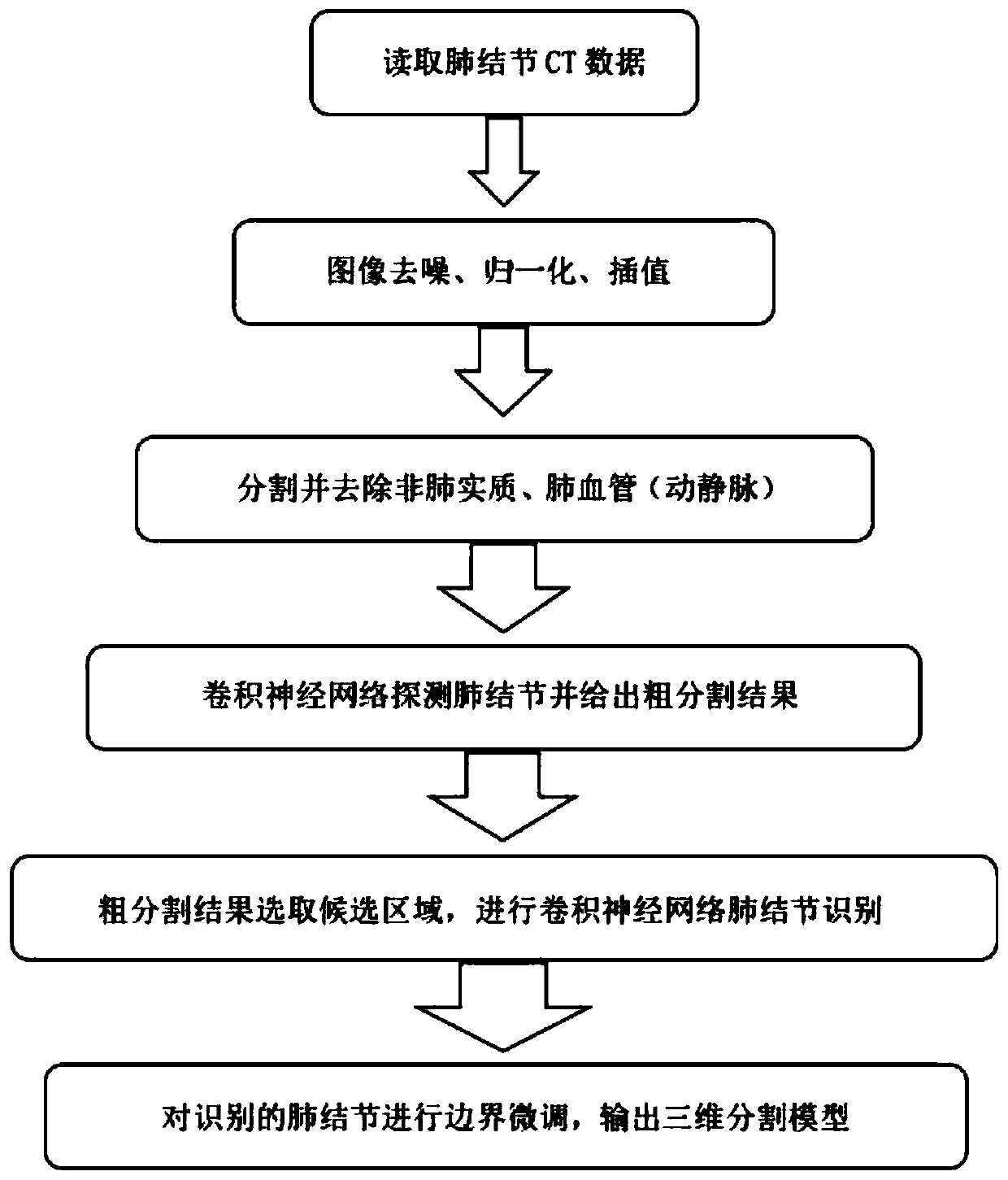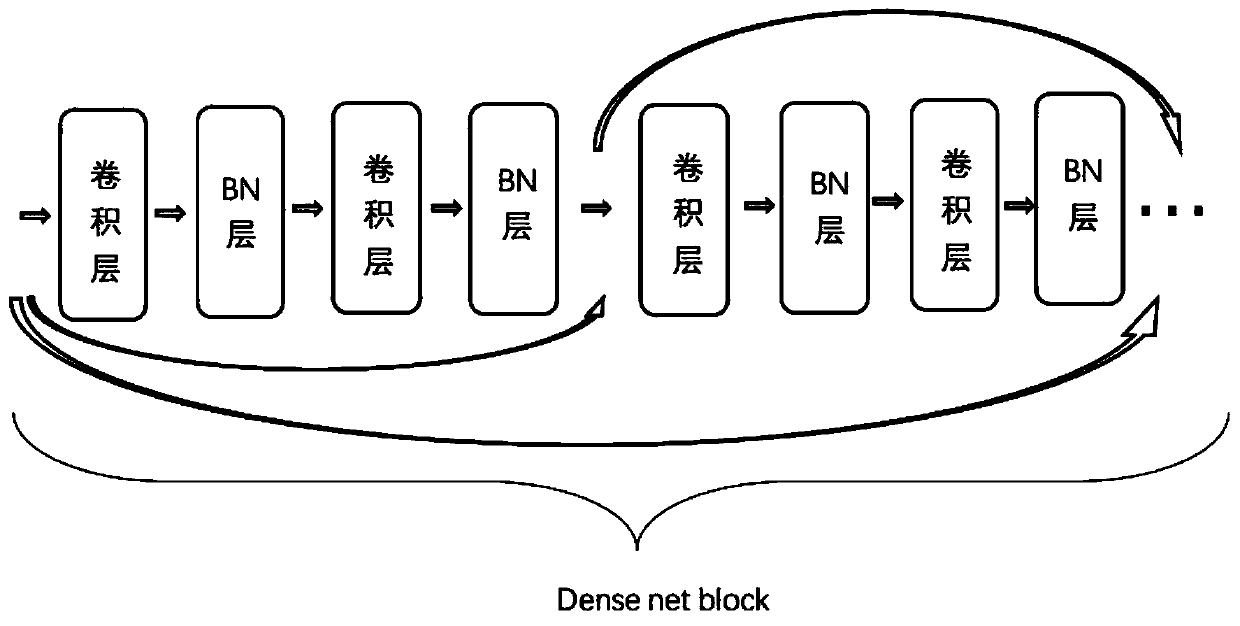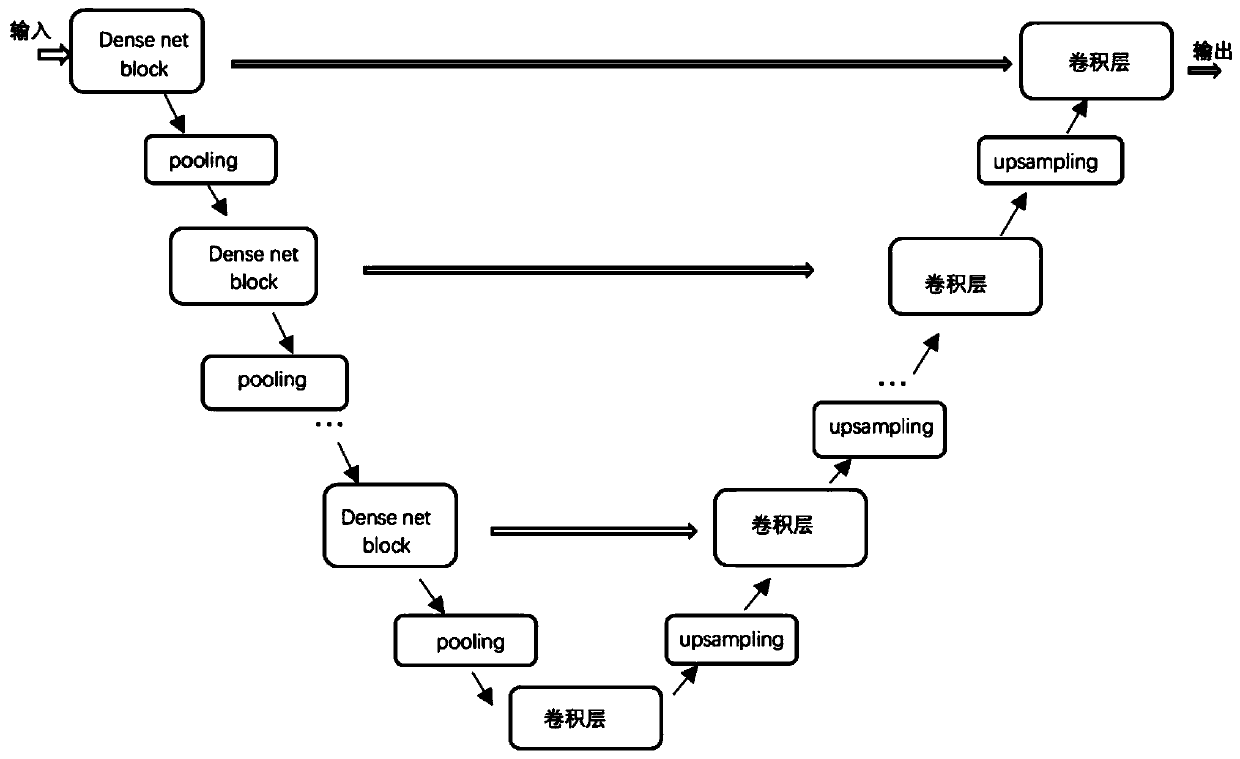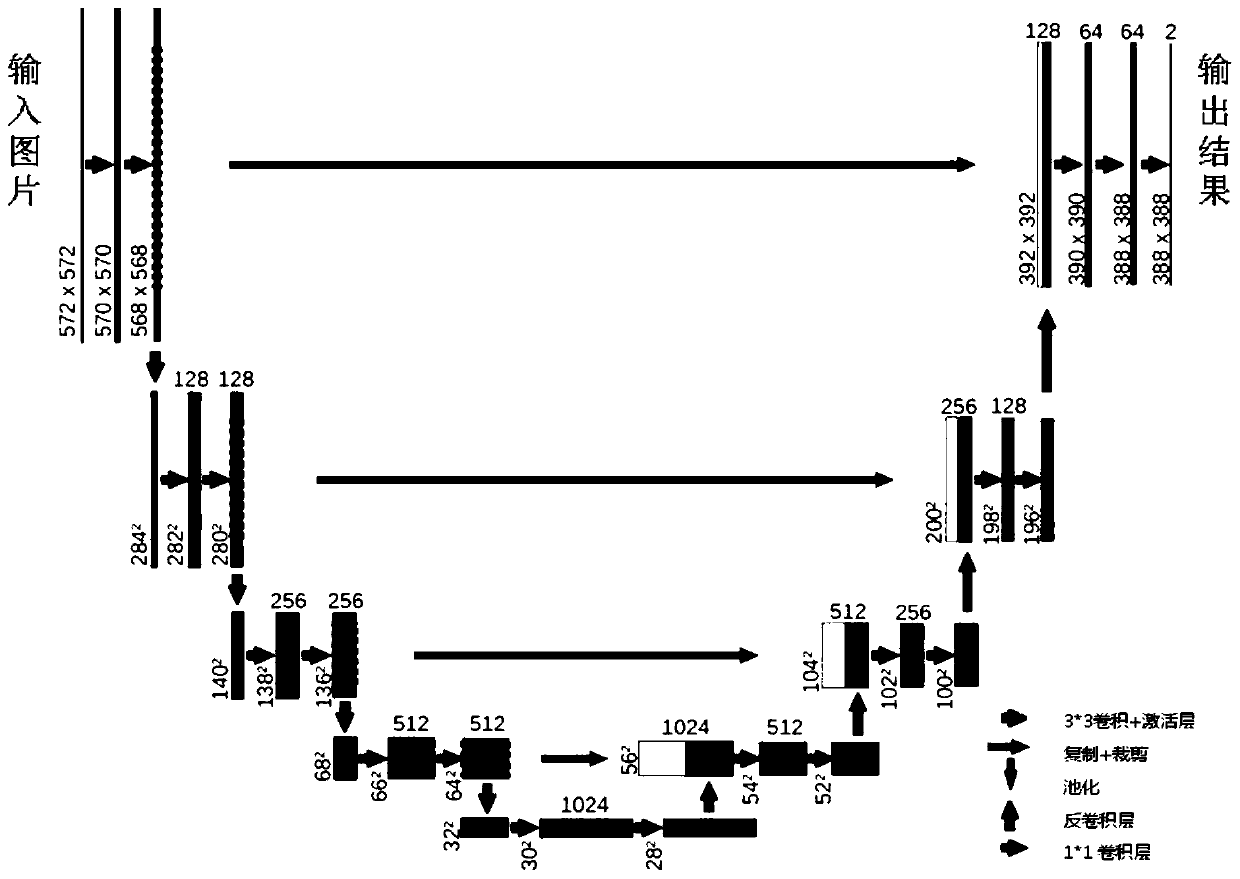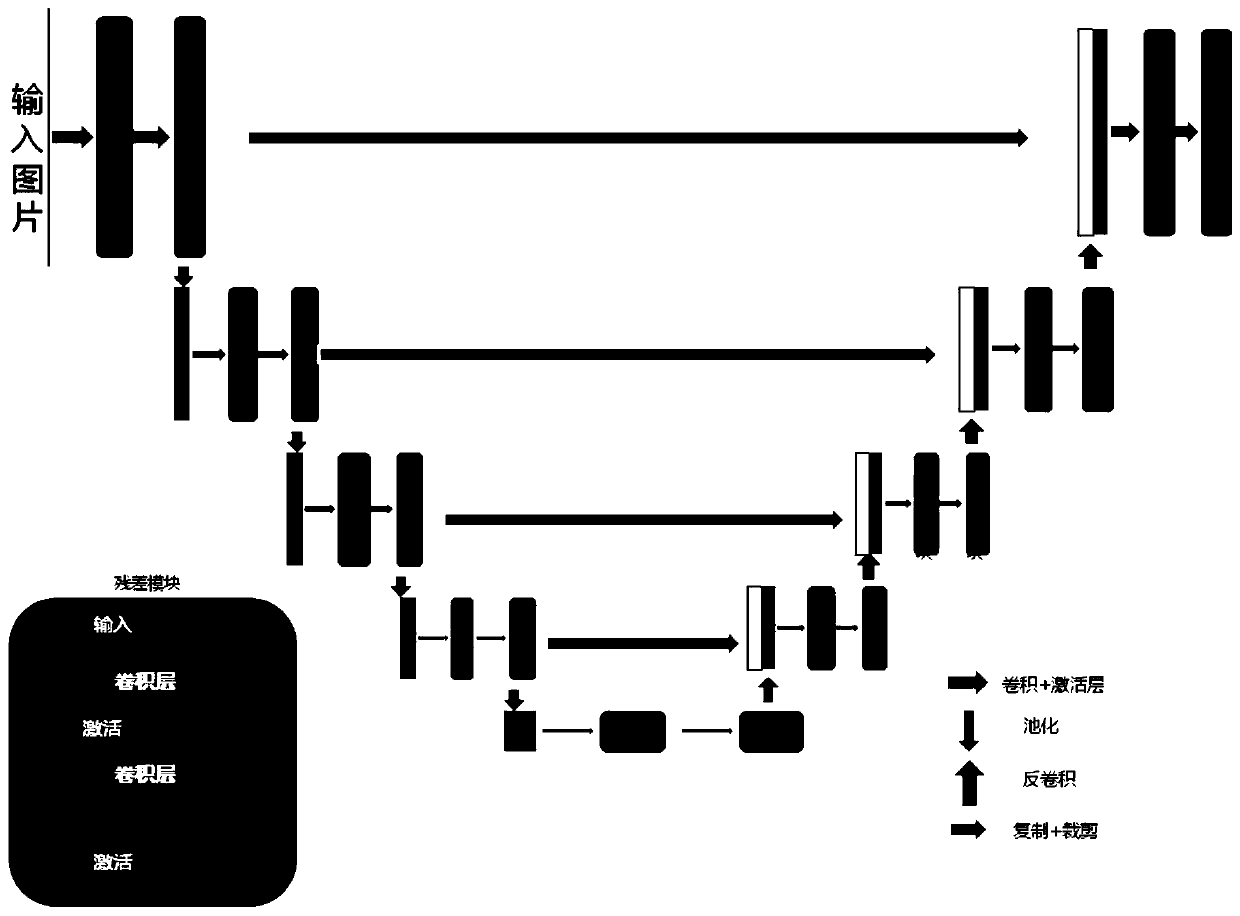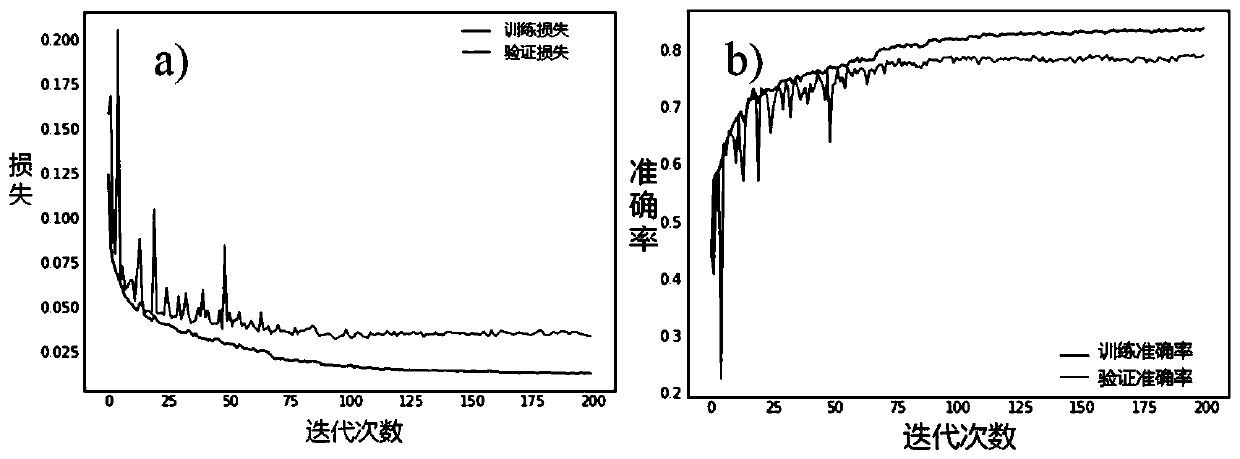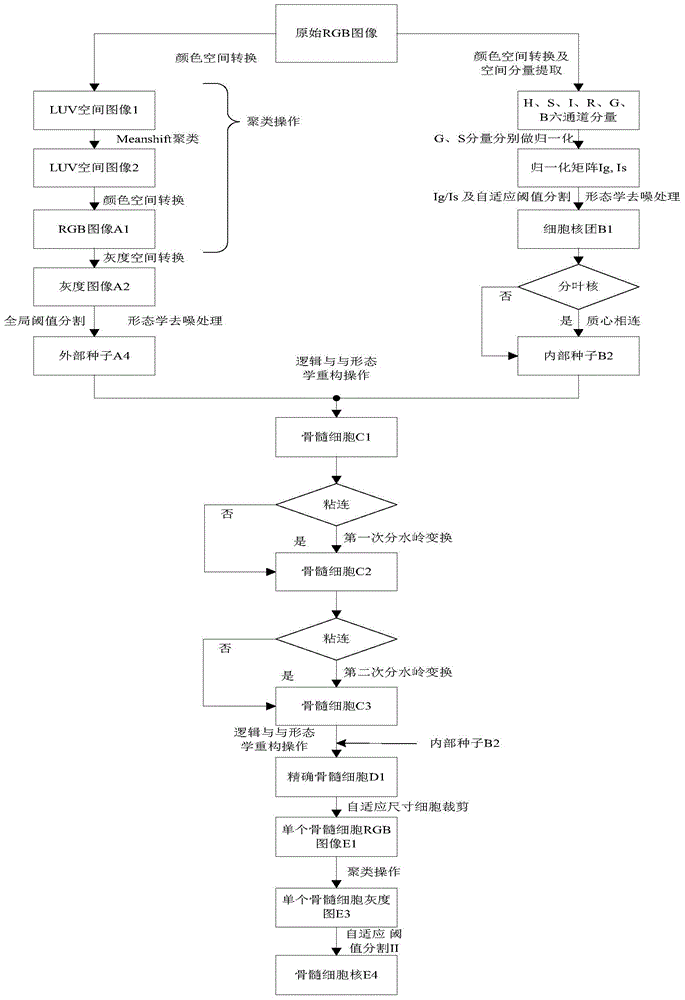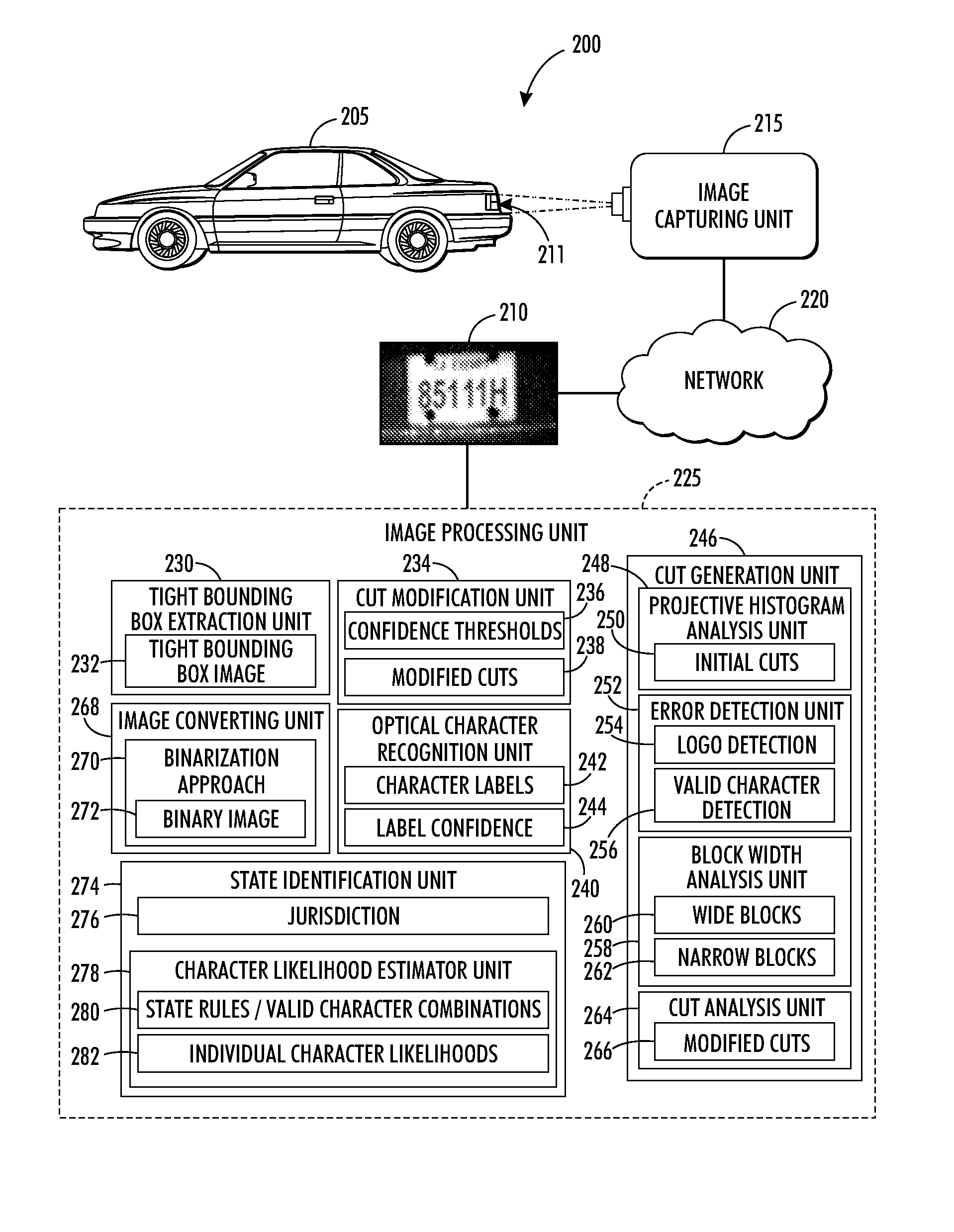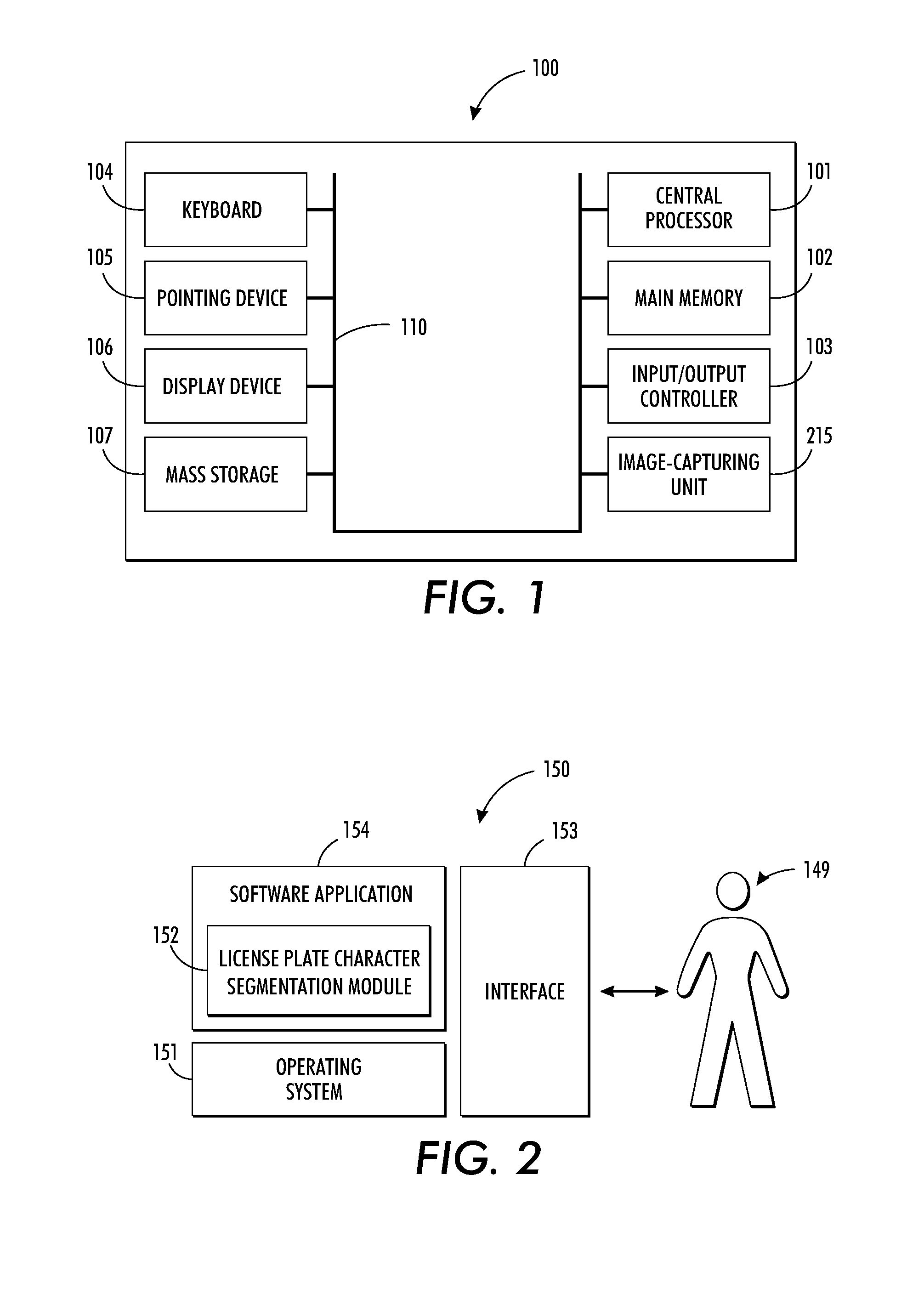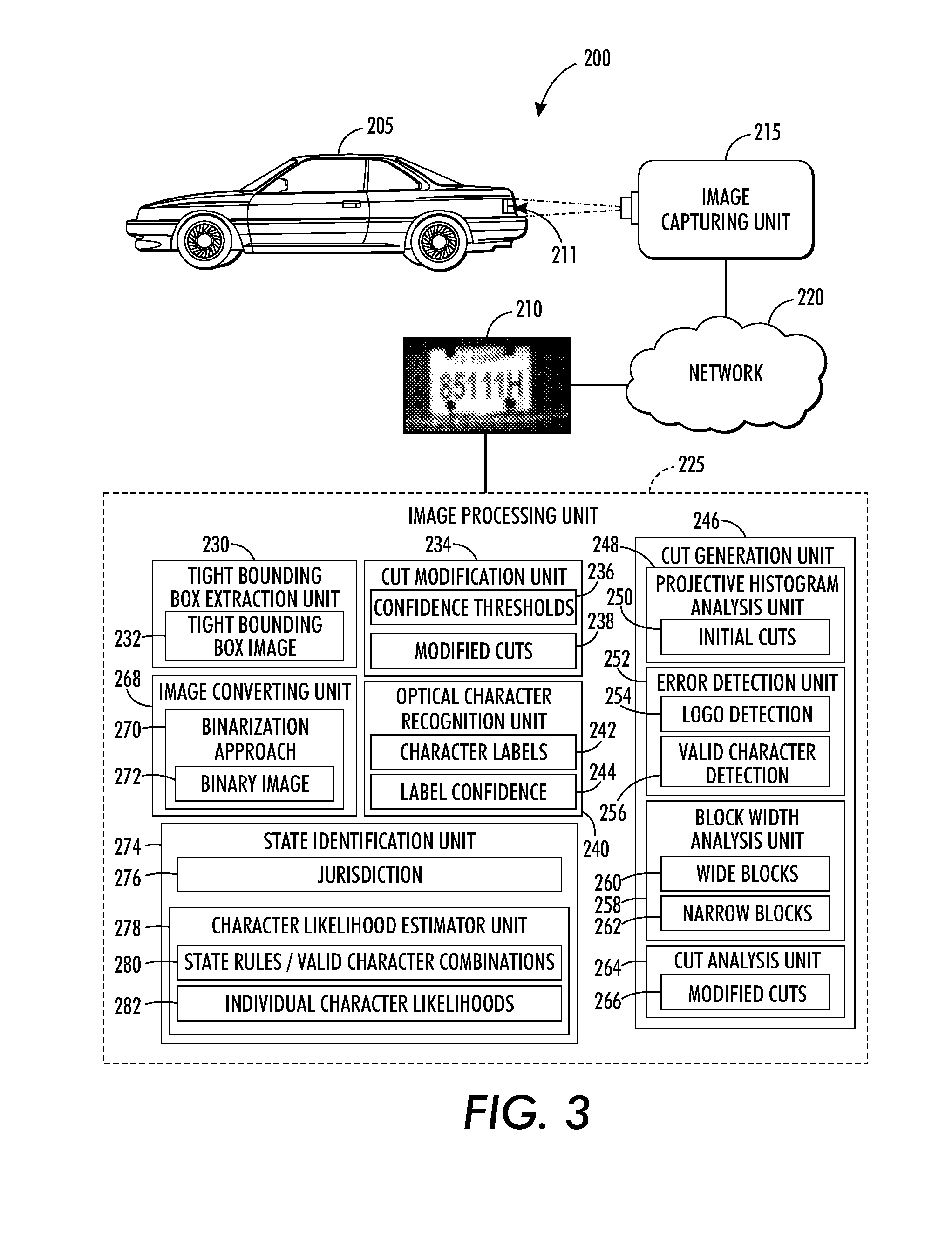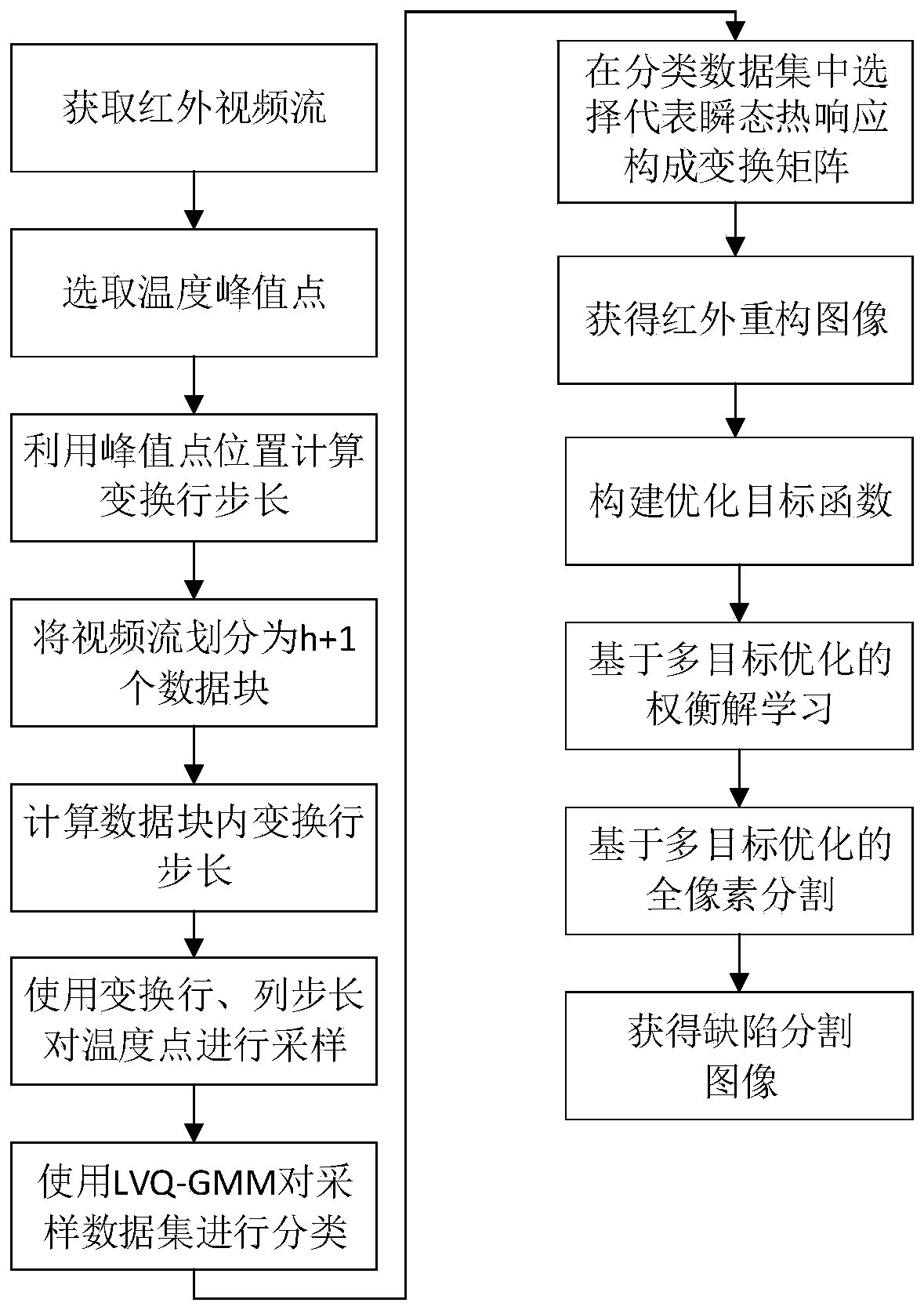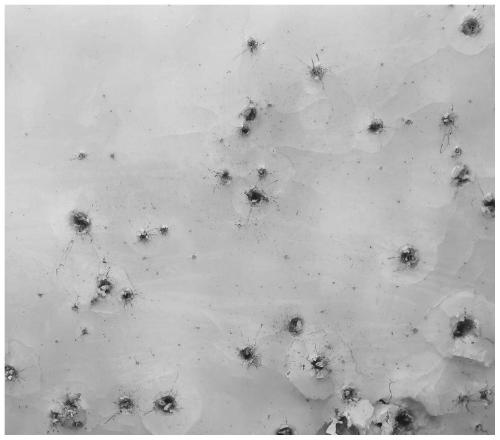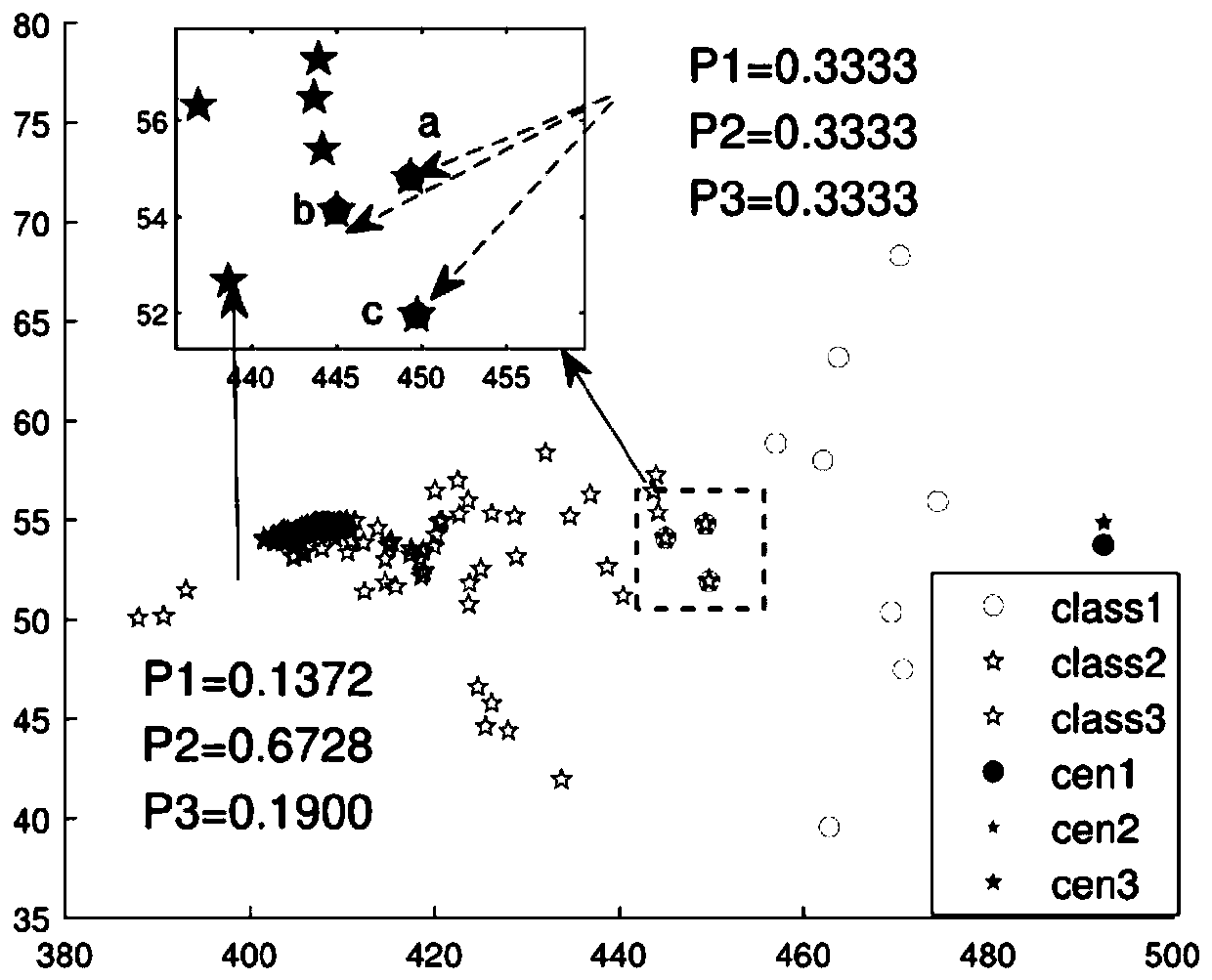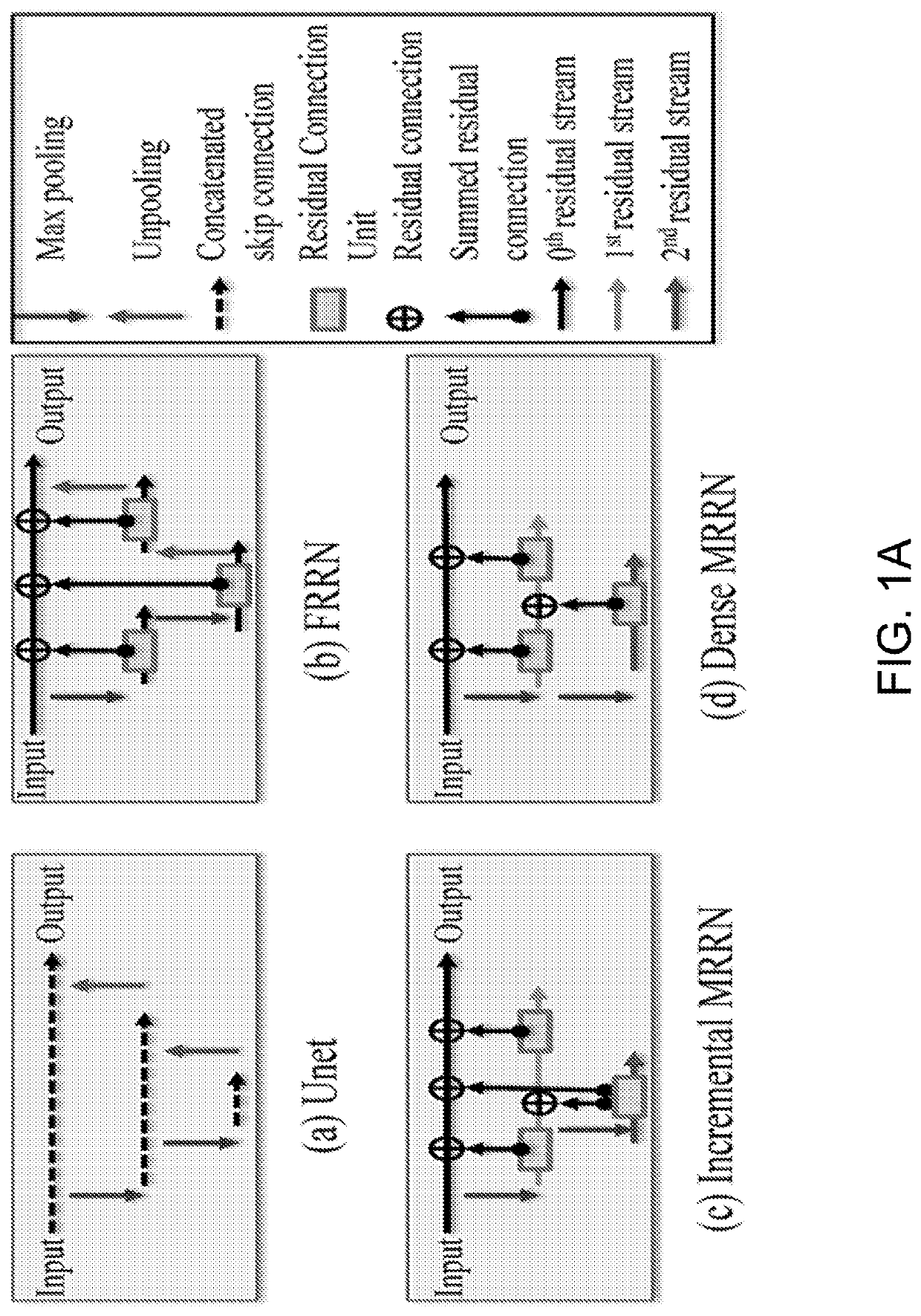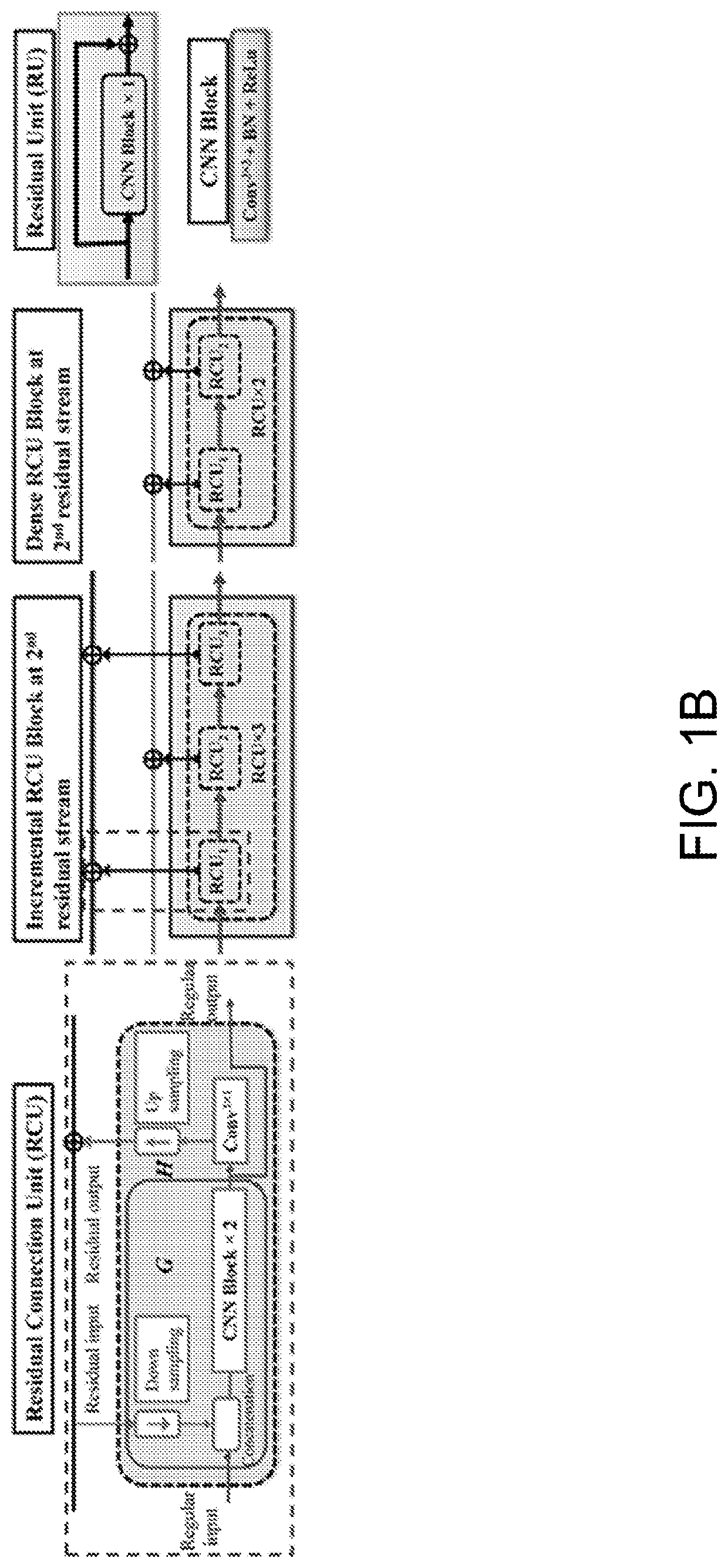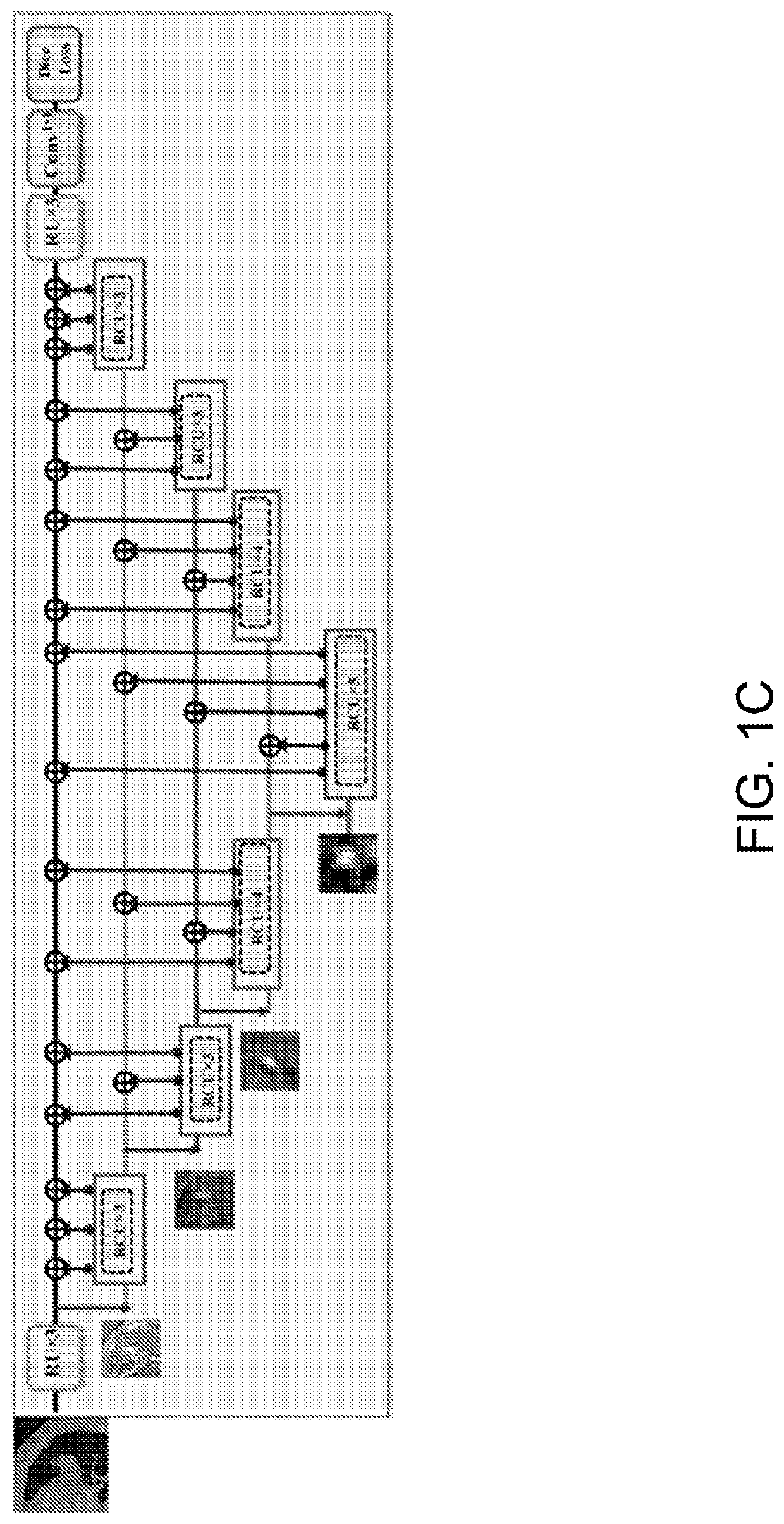Patents
Literature
618 results about "Accurate segmentation" patented technology
Efficacy Topic
Property
Owner
Technical Advancement
Application Domain
Technology Topic
Technology Field Word
Patent Country/Region
Patent Type
Patent Status
Application Year
Inventor
MRI (Magnetic Resonance Imaging) brain tumor localization and intratumoral segmentation method based on deep cascaded convolution network
ActiveCN108492297AAlleviate the sample imbalance problemReduce the number of categoriesImage enhancementImage analysisClassification methodsHybrid neural network
The invention provides an MRI (Magnetic Resonance Imaging) brain tumor localization and intratumoral segmentation method based on a deep cascaded convolution network, which comprises the steps of building a deep cascaded convolution network segmentation model; performing model training and parameter optimization; and carrying out fast localization and intratumoral segmentation on a multi-modal MRIbrain tumor. According to the MRI brain tumor localization and intratumoral segmentation method provided by the invention based on the deep cascaded convolution network, a deep cascaded hybrid neuralnetwork formed by a full convolution neural network and a classified convolution neural network is constructed, the segmentation process is divided into a complete tumor region localization phase andan intratumoral sub-region localization phase, and hierarchical MRI brain tumor fast and accurate localization and intratumoral sub-region segmentation are realized. Firstly, the complete tumor region is localized from an MRI image by adopting a full convolution network method, and then the complete tumor is further divided into an edema region, a non-enhanced tumor region, an enhanced tumor region and a necrosis region by adopting an image classification method, and accurate localization for the multi-modal MRI brain tumor and fast and accurate segmentation for the intratumoral sub-regions are realized.
Owner:CHONGQING NORMAL UNIVERSITY
White blood cell image accurate segmentation method and system based on support vector machine
InactiveCN103473739AAccurate segmentationImprove stabilityImage enhancementImage analysisWhite blood cellVisual saliency
The invention discloses a white blood cell image accurate segmentation method and system based on a support vector machine. The method comprises performing nucleus initial positioning and segmenting, performing rough expansion so as to obtain a substantial area labeled graph of cells, and accurately segmenting the cells by using color characteristics and the classifier of the support vector machine. According to the method provided by the invention, on one hand, according to a mankind visual saliency attention mechanism, the sensitivity of human eyes to the change of image edges are simulated, and a nucleus area can be accurately and rapidly segmented by using the clustering of edge-color pairs; and on the other hand, the adopted classifier of the support vector machine has excellent stability and anti-interference performance, and at the same time the space relationship of color information and pixel points are fully utilized so that the training sample sampling mode of the classifier of the support vector machine is improved, thus the accurate segmentation of white blood cells in a cell small image can be realized.
Owner:HUAZHONG UNIV OF SCI & TECH
Dermoscopy image automatic segmentation method based on full convolutional neural network
ActiveCN107203999AAccurate segmentationEasy to operateImage enhancementImage analysisAutomatic segmentationNerve network
The present invention provides a dermoscopy image automatic segmentation method based on a full convolutional neural network. The method comprises the following four steps: 1: obtaining of dermoscopy images and true value graphs; 2: performing structure design of a full convolutional neural network; 3: performing design of feature fusion and a per-pixel segmentation method; and 4: performing network training and segmentation. According to the steps mentioned above, an end-to-end depth convolutional neural network is obtained through training to perform accurate segmentation of the dermoscopy images and allow a small area skin lesion area to be effective so as to solve actual problems that the skin lesion area segmentation is not good to influence the subsequent diagnosis accuracy in the dermatology computer auxiliary diagnosis system.
Owner:BEIHANG UNIV
Method for processing multimedia video object
ActiveCN101409831ASimple and seamless splicing schemeAvoid false detectionImage enhancementImage analysisTime domainComputer graphics (images)
The invention discloses a multimedia video object processing method which comprises the steps as follows: (1) carrying out scene dividing on an MPEG video based on macro block information; (2) pre-reading a video needed to be jointed, obtaining various information and searching a proper joint scene; (3) searching the inlet point and the outlet point of the joint and carrying out regulation on various information of the accessed video; (4) selecting a proper audio joint point to realize audio-video seamless joint; (5) setting a video buffer area and unifying the code rate of the video to be jointed; (6) carrying out coarse extraction on a moving object in the video in a time domain; (7) carrying out watershed processing on the coarse extraction result, carrying out space region merging and leading to a accurate segmentation object. The .invention is characterized by simple and high-efficiency algorithm, low system resource consumption and fast speed and high accuracy of processing.
Owner:ZHEJIANG BOXSAM ELECTRONICS
Three-dimensional MRI image-based breast tumor automatic segmentation method
ActiveCN107464250AReduce workloadShorten the timeImage enhancementImage analysisAutomatic segmentationAccurate segmentation
The invention provides a three-dimensional MRI image-based breast tumor automatic segmentation method. The method comprises the following steps of performing image preprocessing: providing an initial MRI image and performing preprocessing on the initial MRI image by adopting a non local mean filter; performing breast tumor locating: building a multilayer processing model for a training set, performing hierarchical abstraction on characteristics of a training object by adopting a convolutional neural network, automatically extracting segmentation characteristics, and outputting a probability distribution graph of a tumor position; performing breast tumor boundary segmentation: providing a breast three-dimensional MRI image, determining a seed point based on the probability distribution graph of the tumor position, and finishing segmentation initialization to obtain an initial region C0 of a tumor; and performing accurate segmentation on the tumor by using a region growth algorithm.
Owner:THE SECOND PEOPLES HOSPITAL OF SHENZHEN
Blood vessel segmentation method for liver CTA sequence image
ActiveCN105741251AEasy to handleOptimization Center ResponseImage enhancementImage analysisImage segmentation algorithmRadiology
The invention discloses a blood vessel segmentation method for a liver CTA sequence image. Firstly contrast enhancement and noise smoothing preprocessing are performed on an inputted three-dimensional liver sequence image; then liver blood vessels and the boundary thereof are enhanced and blood vessel centers are thinned by adopting OOF and OFA algorithms; seed points of the blood vessel center lines are automatically searched according of the geometrical structure of the blood vessels, and the center lines of the liver blood vessels are extracted so as to construct a liver blood vessel tree; and finally the liver blood vessels are preliminarily segmented through combination of a fast marching method and corresponding blood vessel and background gray scale histograms are calculated, and accurate segmentation of the liver blood vessels is realized by adopting an image segmentation algorithm. The liver blood vessels can be effectively and accurately segmented by fully utilizing the geometrical shape and gray scale information of the blood vessels for aiming at the CTA sequence image which is low in contrast, high in noise and fuzzy in boundary. The blood vessel segmentation method for the liver CTA sequence image can be popularized to other three-dimensional blood vessel segmentation.
Owner:湖南提奥医疗科技有限公司
Method of quickly segmenting moving target in non-restrictive scene based on full convolution network
ActiveCN106296728AOvercoming the disadvantages of incomplete target segmentationUnlimited sizeImage enhancementImage analysisGround truthSample image
The invention relates to a method of quickly segmenting a moving target in a non-restrictive scene based on a full convolution network, which belongs to the technical field of video object segmentation. The method comprises steps: firstly, framing is carried out on the video, and a result after framing is used for making a Ground Truth set S for a sample image; a full convolution neural network trained through a PASCAL VOC standard library is adopted to predict a target in each frame of the video, a deep feature estimator for an image foreground target is acquired, target maximum intra-class likelihood mapping information in all frames is obtained hereby, and initial prediction on the foreground and the background in the video frames is realized; and then, through a Markov random field, deep feature estimators for the foreground and the background are refined, and thus, segmentation on the video foreground moving target in the non-restrictive scene video can be realized. The information of the moving target can be effectively acquired, high-efficiency and accurate segmentation on the moving target can be realized, and the analysis precision of the video foreground-background information is improved.
Owner:KUNMING UNIV OF SCI & TECH
Method and system for segmenting cervical caner cells
InactiveCN103984958AAccurate segmentationGuaranteed processing speedCharacter and pattern recognitionSpecial data processing applicationsSegmented cellCytoplasm
The invention relates to a method for segmenting cervical cancer cells. The method includes the following steps that noise of a cervical image is eliminated; a cytoplasm template is constructed for the image of which the noise is eliminated to perform rough segmentation, so that a cytoplasm area is obtained through segmentation; super-pixels are calculated for the cytoplasm area obtained through segmentation; the cytoplasm area which the super-pixels are calculated for is classified by the adoption of a convolution neural network; according to the constructed cytoplasm template of the image of which the noise is eliminated, cell nucleuses are roughly segmented; the roughly segmented cell nucleuses are corrected, and therefore segmentation on the cervical cancer cells is finished. The invention further relates to a system for segmenting the cervical cancer cells. On one hand, processing speed is guaranteed, and on the other hand, an accurate segmentation effect is achieved.
Owner:SHENZHEN UNIV
Robust character segmentation for license plate images
ActiveUS8934676B2Efficiently achieving accurate and enhanced segmentation of charactersImprove performanceCharacter recognitionSensing by electromagnetic radiationVertical projectionAccurate segmentation
A method and system for achieving accurate segmentation of characters with respect to a license plate image within a tight bounding box image. A vehicle image can be captured by an image capturing unit and processed utilizing an ALPR unit. A vertical projection histogram can be calculated to produce an initial character boundary (cuts) and local statistical information can be employed to split a large cut and insert a missing character. The cut can be classified as a valid and / or a suspect character and the suspect character can be analyzed. The suspect character can be normalized and passed to an OCR module for decoding and generating a confidence quote with every conclusion. The non-character images can be rejected at the OCR level by enforcing a confidence threshold. An adjoining suspect narrow character can be combined and the OCR confidence of the combined character can be assessed.
Owner:CONDUENT BUSINESS SERVICES LLC
A mango picking point recognition method
ActiveCN109711325ASolving the Detection Segmentation ChallengeAccurate segmentationCharacter and pattern recognitionNeural architecturesPattern recognitionArtificial intelligence
The invention discloses a mango picking point recognition method which comprises the following steps: collecting mango images, and establishing a mango picking image library in a natural scene; establishing a mango fruit segmentation model based on a Mask R-CNN network ; calculating the long axis, the short axis and the mass center of each fruit; judging whether a cluster is formed or not by usinga bottom-up hierarchical clustering method; If the mango fruits are clustered, cluster fruit mother branches are identified, and picking points are positioned on the mother branches; and if the mangois a single fruit, segmenting and identifying fruit stems of the fruit, and determining picking points on the fruit stems. Mask-based R-is utilized in the invention. The mango fruit segmentation model of the CNN network carries out fruit instance segmentation, solves the detection segmentation problem caused by light change, shielding and overlapping in a natural orchard scene, and has the advantages of accurate segmentation and multiple application scenes.
Owner:SOUTH CHINA AGRI UNIV
Method for segmenting image with non-uniform gray scale based on level set function
InactiveCN102354396AImprove accuracyImprove efficiencyImage enhancementEnergy functionalComputer vision
The invention provides a method for segmenting an image with non-uniform gray scale based on a level set function. The method comprises the following steps: constructing the level set function; constructing image segmentation energy functional; and carrying out level set function evolution so that the energy functional is minimized so as to obtain an image segmentation boundary, wherein, the energy functional comprises a global energy statistical item, a local energy statistical item and an energy penalty item. In the invention, on the basis of a C-V (Chan-Vese) model, a Gaussian kernel function is introduced and the local statistical information for the image with the non-uniform gray scale is fully utilized so as to optimize the 'energy' functional for a minimized closed curve; and by adding the energy penalty item, convergence of a signed distance function (SDF) is ensured and the time-consuming reinitialization process is avoided. Experiments prove that by adopting the method for segmenting the image with the non-uniform gray scale, clear and accurate segmentation results can be obtained and the segmentation accuracy and efficiency for the image with the non-uniform gray scale can be improved.
Owner:SHENZHEN GRADUATE SCHOOL TSINGHUA UNIV
Convolutional neural network road scene classification and road segmentation method
InactiveCN109993082AOptimize outputImprove the function of intelligent driving assistance systemCharacter and pattern recognitionConditional random fieldRural roads
The invention relates to a convolutional neural network road scene classification and road segmentation method. A dual-task joint structure model based on the convolutional neural network is established.and composed of an encoder and two decoders. Feature information sharing is achieved through end-to-end training.Classification of various road scenes such as urban roads, rural roads and highwaysis completed, road drivable areas in the scenes are segmented, and the dual goals of road scene classification and road area segmentation are achieved. Based on a convolutional neural network, scene classification and road extraction in road scene perception are combined. Real-time output is obtained through an end-to-end training mode, the functions of an intelligent driving assistance system areimproved, and an effective and reliable driving assistance function is provided. A mode of combining a full convolutional network and a conditional random field is adopted for a part extracted from adrivable area in the model, a high-resolution image optimization output result can be generated, and a relatively accurate segmentation effect is achieved.
Owner:UNIV OF SHANGHAI FOR SCI & TECH
Automatic fast segmenting method of tumor pathological image
ActiveCN104933711AReduce workloadImprove efficiencyImage enhancementImage analysisAbnormal tissue growthFilter algorithm
The invention discloses an automatic fast segmenting method of a tumor pathological image. The method comprises the following steps: firstly filtering a tumor original pathological image through the adoption of a Gaussian pyramid algorithm to respectively obtain pathological images with equal resolution, double resolution, fourfold resolution, eightfold resolution and 16-fold resolution; determining an initial region of interest containing the tumor on the equal resolution image through a RGB color model and morphological close operation; iteratively optimizing the initial regions of interest from the equal resolution to the fourfold resolution through the adoption of bhattacharyya distance; judging that the contribution of the RGB color model to the tumor region of interest has been reduced to zero when the bhattacharyya distance achieves a set threshold value; performing the self-adaptive high resolution selection of the deep precise segmentation through the adoption of a convergence exponent filtering algorithm, thereby further segmenting under the most suitable high resolution; and finally segmenting out a normal tissue and a tumor tissue in the tumor region of interest through the adoption of a bag of words model based on random projection. The method disclosed by the invention has the features of being accurate, fast and automatic.
Owner:NANTONG UNIVERSITY
Semantic object dividing method suitable for low depth image
InactiveCN101299268ASatisfy IntegrityMaintain object detailImage enhancementImage analysisDepth of fieldVideo sequence
The present invention relates to a semantic object segmentation method suitable for low field depth image, which includes: firstly introducing gradient histogram to figure out the distribution of image in the energy space, obtaining an energy focusing significance map in combination with the character of the low field depth map; using the two-sided filter and morphology instrument to rehandle the energy focusing significance map; and then setting self-adapting threshold value and processing to obtain an initial object mask map, combining with the edge information obtained by canny operator to obtain the corrected object mask, in order to raise the segmentation accuracy of the interesting object; finally using the Bayesian eclosion algorithm to obtain the ideal semantic object segmentation result, in order to delicately process the complicated image boundary, such as hairs. Accurate segmentation to the interesting object in the field depth scope in the image video sequence.
Owner:SHANGHAI UNIV
Video segmentation method, video action recognition method and device, equipment and medium
ActiveCN109740499ABroaden application scenariosImprove universal applicabilityCharacter and pattern recognitionAccurate segmentationElectronic equipment
The invention provides a video segmentation method and device, a video action recognition method, electronic equipment and a computer readable storage medium, and belongs to the technical field of computers. The video segmentation method comprises the following steps: determining the similarity between two adjacent frames of images in a target video; if the similarity between every two adjacent frames of images is smaller than a first threshold value, the two adjacent frames serve as boundary frames of an intermediate video clip, and the target video is segmented into a plurality of intermediate video clips; determining a second threshold of the intermediate video clip; and taking two adjacent frames of which the similarity is smaller than the second threshold value in the intermediate video clip as boundary frames of a final video clip, and segmenting the intermediate video clip into the final video clip. According to the method and the device, accurate segmentation of the video can be realized, the video clip with a definite single content theme is obtained, and the video clip can be used for action recognition, so that the accuracy of video action recognition is improved.
Owner:BEIJING KUANGSHI TECH
Image enhancement method and mobile terminal
InactiveCN105303543AImprove the shooting effectAccurate segmentationImage enhancementImage analysisComputer terminalVisual perception
The invention discloses an image enhancement method. The method comprises steps: the mobile terminal acquires multiple images via a multi-view vision platform, and according to the multiple images, a depth image and position information of an object in a shooting scene is acquired; according to the position information and the depth image pixel information, image segmentation processing is carried out on the depth image to acquire a target area; and local enhancement processing is carried out on the target area. The invention also discloses a mobile terminal for the image enhancement. Accurate segmentation is carried out on the target area in the image acquired by the multi-view vision platform according to the position information of the object in the shooting scene, the target area is then subjected to local enhancement, and image shooting effects in a backlighting environment can be improved.
Owner:NUBIA TECHNOLOGY CO LTD
Rapid threshold segmentation method based on gray level-gradient two-dimensional symmetrical Tsallis cross entropy
The invention relates to a rapid threshold segmentation method based on gray level-gradient two-dimensional symmetrical Tsallis cross entropy, aims at the problems that approximate assumption exists in a conventional gray level-average gray level histogram and a whole solution space is required to be searched by calculation, so that segmentation is inaccurate and the efficiency is not high, and provides improved two-dimensional symmetrically Tsallis cross entropy threshold segmentation and a rapid recursive method thereof. The threshold segmentation method is higher in universality and accurate in segmentation; in order to realize accurate segmentation of a gray image, a new gray level-gradient two-dimensional histogram is adopted, and a two-dimensional symmetrical Tsallis cross entropy theory with a superior segmentation effect is combined with the histogram, so that the gray level image segmentation accuracy is effectively improved; the requirement for on-line timeliness of an industrial assembly line is met at the same time, a novel rapid recursive algorithm is adopted, and redundant calculation is reduced; and after a gray level image of the industrial assembly line is processed, the inside of an image zone is uniform, the contour boundary is accurate, the texture detail is clear, and at same time, good universality is provided.
Owner:WUXI XINJIE ELECTRICAL +1
End-to-end tumor segmentation method based on multi-attention mechanism
ActiveCN109754404AImprove segmentationEasy to splitImage analysisNeural architectures3d imageBrain tumor
The invention relates to an end-to-end tumor segmentation method based on a multi-attention mechanism. The method mainly comprises a backbone network part and an attention module part, the backbone network comprises three sub-networks, and the three sub-networks are composed of improved 3D Resinual U-net composition; and the attention module is composed of a specially designed double-branch structure. The method can make up the defect of low training efficiency in the prior art; defect of poor segmentation precision, converting the multi-class segmentation problem of a plurality of tumor sub-regions into a plurality of two-class segmentation tasks. The attention mechanism takes the segmentation result of the tumor peripheral edema region as a soft attention and adds the soft attention intothe segmentation subtask for the tumor core part, and the segmentation result of the tumor core part is also added into the segmentation subtask for the enhancement region in the tumor core through the attention mechanism. The method is suitable for segmentation of 3D images of tumor lesion tissues with similar hierarchical structures including brain tumors, including MRI images, CT images and the like, and a more accurate segmentation result can be provided.
Owner:SHENZHEN GRADUATE SCHOOL TSINGHUA UNIV
Field rice ear segmentation method based on depth learning
ActiveCN109360206AAccurate segmentationImprove accuracyImage enhancementImage analysisPanicleNetwork model
The invention discloses a field rice ear segmentation method based on depth learning. In this method, a depth-total convolution neural network model was designed for segmentation of rice panicles. Thefirst half of the network uses ResNet-101 layers is provided with the Squeeze and Excitation Module structure to filter the importance of the feature layer. All conventional convolution layers in theoriginal ResNet-101 network module 4 and module 5 are replaced with void convolution layers, and the step size is changed from 2 to 1. The second half of the network adopts hollow pyramid pooling andpyramid pooling structure. The method can overcome the great differences of rice ear color, shape, size, posture and texture in different varieties and growth stages, and can realize accurate segmentation of rice ear in different varieties and growth stages. The method can also overcome the influence of irregular edge of rice ear, leaf color aliasing, uneven and changing illumination, shielding and wind in the field. Compared with the prior art, the method has the technical advantages of high precision and strong applicability.
Owner:HUAZHONG AGRI UNIV
X-ray chest radiography lung segmentation method and device
ActiveCN104424629AAccurate segmentationGood initial lung shapeImage enhancementImage analysisNuclear medicineRadiography
The invention discloses an X-ray chest radiography lung segmentation method so as to carry out accurate segmentation on lungs in an X-ray chest radiography. The method includes the following steps: S101: through horizontal and vertical projection, obtaining two rectangular areas which respectively surround left and right lung images in the X-ray chest radiography; S102: initializing the lungs in the two rectangular areas so as to obtain the initial shapes of the lungs; S103: according to a weighted grey local texture model, searching for optimal matching points of characteristic points in the lung images; S104: through adjustment of attitude parameters and a shape parameter b, enabling current shapes I<Xc> of the lungs to approximate I<X>+dI<X> in the largest degree; and repeating S103 and S104 until the change quantities are smaller than preset thresholds when obtained lung shapes are compared with lung shapes obtained through a previous adjustment next to a current adjustment. The method and device are capable of obtaining better initialization lung shapes and do not cause an over-segmentation phenomenon in a follow-up adjustment process and are capable of carrying out accurate segmentation on lung areas in the X-ray chest radiography under the restraint of an active shape model.
Owner:SHENZHEN INST OF ADVANCED TECH
Method of analyzing multi-sequence MRI data for analysing brain abnormalities in a subject
The present invention, referred to as Oasis is Automated Statistical Inference for Segmentation (OASIS), is a fully automated and robust statistical method for cross-sectional MS lesion segmentation. Using intensity information from multiple modalities of MRI, a logistic regression model assigns voxel-level probabilities of lesion presence. The OASIS model produces interpretable results in the form of regression coefficients that can be applied to imaging studies quickly and easily. OASIS uses intensity-normalized brain MRI volumes, enabling the model to be robust to changes in scanner and acquisition sequence. OASIS also adjusts for intensity inhomogeneities that preprocessing bias field correction procedures do not remove, using BLUR volumes. This allows for more accurate segmentation of brain areas that are highly distorted by inhomogeneities, such as the cerebellum. One of the most practical properties of OASIS is that the method is fully transparent, easy to implement, and simple to modify for new data sets.
Owner:THE HENRY M JACKSON FOUND FOR THE ADVANCEMENT OF MILITARY MEDICINE INC +2
Fuzzy word segmentation based non-multi-character word error automatic proofreading method
ActiveCN104991889AQuick responseMeet the actual application needsSpecial data processing applicationsChinese wordWord graph
The invention discloses a fuzzy word segmentation based non-multi-character word error automatic proofreading method. According to the method, accurate segmentation is carried out based on a correct word dictionary and a wrong character word dictionary to generate a word graph; then the similarity of Chinese word strings is calculated by utilizing a fuzzy matching algorithm, accurately segmented disperse strings are subjected to fuzzy matching, and a fuzzy matching result is added into the word graph to form a fuzzy word graph; and finally a shortest path of the fuzzy word graph is calculated by utilizing a binary model of words in combination with similarity, so that automatic proofreading of Chinese non-multi-character word errors is realized. According to the fuzzy word segmentation based non-multi-character word error automatic proofreading method provided by the invention, the system response is quick, the precision meets actual application demands, and the effectiveness and the accuracy are high.
Owner:南方电网互联网服务有限公司
Super pixels and structure constraint based image's multiple targets synchronous segmentation method
ActiveCN105809672AImprove scalabilityEfficient solutionImage analysisCharacter and pattern recognitionComputer visionCombinatorial optimization
The present invention discloses a super pixels and structure constraint based image's multiple targets synchronous segmentation method. The method is applied to a set of images with shared targets, and each of the images is allowed to have more than more shared target. With this method, the shared targets can be precisely segmented. Firstly, a pre-segmentation operation is performed to the inputted set of images to develop segmented images. Then, based on a target detection mechanism, all super pixels are classified as background ones and foreground ones. With it, foreground classifiers are developed. Based on results from the classifiers, models are established for foreground targets and precise segmentation is fulfilled to targets by an optimized algorithm utilizing forest model assumptions and beam constraints. Compared to current algorithms, the method of the invention adopts an optimized algorithm utilizing forest model assumptions and beam constraints, which provides increased segmentation accuracy and makes the method capable of dealing with various complex scenarios.
Owner:ZHEJIANG UNIV
Illumination-classification-based adaptive image segmentation method
InactiveCN102385753AImprove effectivenessImprove segmentationImage analysisImage extractionImaging processing
The invention discloses an illumination-classification-based adaptive image segmentation method which is used for accurately segmenting a target object under different illumination conditions. The illumination conditions are divided into two types, namely a frontlighting type and a backlighting type, by extracting color characteristics of an image to be processed in a red, green and blue (RGB) space and a hue, saturation and value (HSV) space and adopting a minimum euclidean distance classifier; a proper color characteristic quantity serving as a segmenting parameter is extracted from the image in the two illumination types and imported into a two-dimensional histogram; neighbor information of each pixel point is increased, so the interference resistance capacity is improved; and the acquired image is subjected to intelligent illumination judgment and precise segmentation. In the illumination-classification-based adaptive image segmentation method, a mode of judging the illumination condition first and then selecting a segmenting algorithm is adopted, so the algorithm has higher pertinence and the effectiveness of the algorithm is improved; meanwhile, illumination correction is not required, so the computing cost is reduced greatly; and a favorable condition is created for the subsequent image processing and analysis.
Owner:JIANGSU UNIV
An auxiliary detection method for automatically segmenting pulmonary nodules based on a deep convolutional neural network
InactiveCN109727253AImprove detection rateHelps to summarizeImage analysisMedical automated diagnosisPulmonary noduleNerve network
The invention discloses an auxiliary detection method for automatically segmenting pulmonary nodules based on a deep convolutional neural network. The method comprises the following steps: firstly, reading pulmonary CT image data; Preprocessing the lung CT image data, including image interpolation, denoising and normalization processing in sequence, so as to obtain a preprocessed image; Extractinga pulmonary parenchyma region and a blood vessel region from the obtained preprocessed image, and removing data outside the pulmonary parenchyma region and blood vessel region data in the preprocessed image to obtain a candidate region; Detecting and segmenting the candidate areas by using a deep convolutional neural network to obtain a plurality of independent candidate areas; Identifying the independent candidate region by using a deep convolutional neural network to obtain a nodule region; And finally carrying out fine tuning on the boundary of the nodule region to obtain the accurately segmented three-dimensional pulmonary nodule model. According to the method, pulmonary nodules can be effectively detected and segmented, and the boundaries of the nodules and other analogues can be well distinguished.
Owner:西安大数据与人工智能研究院
A feasible road segmentation method based on an improved Unet network model
ActiveCN109840471AGood initialization phaseAvoid vanishing gradientsImage analysisInternal combustion piston enginesHinge lossNetwork model
The invention discloses a feasible road segmentation method based on an improved Unet network model, and the method comprises the steps: modifying a convolutional layer in a Unet training model into aResNet residual module, and carrying out the back propagation training through employing a cross entropy loss function and a Lovsz hinge loss function; Performing feasible region segmentation on theroad scene without the segmentation label by adopting the trained model; Carrying out scale, contrast and normalization processing on the training picture and the corresponding segmentation mask mark,carrying out enhancement processing on the training sample, carrying out histogram matching processing on the test data by taking an average histogram of the training data as a template, carrying outtesting, and outputting a road segmentation result. According to the method, on the basis of not increasing the model complexity, the road segmentation precision is greatly improved, and real-time accurate segmentation of the feasible region of the road can be basically realized.
Owner:TIANJIN UNIV +1
AML cell segmentation method based on Meanshift cluster and morphological operations
ActiveCN104484877ASolve the over-segmentation problemGood segmentation effectImage enhancementImage analysisBone marrow cellCell segmentation
The invention discloses an AML (Acute Myelocytic Leukemia) cell segmentation method based on Meanshift cluster and morphological operations. The algorithm is to cluster a bone marrow cell and a cell nucleus from two aspects of spatial distance and color distance, and is combined with a series of morphological operations and the modified watershed conversion technology, so as to solve the accurate segmentation problem of the adherent bone marrow cell and bone marrow cell nucleus. The algorithm is high in stability, and good in robustness for segmenting the adherent bone marrow cells with different AML types under different illumination conditions.
Owner:SHANDONG UNIV
Robust character segmentation for license plate images
ActiveUS20130294654A1Minimizing errorMinimizing false alarmCharacter recognitionVertical projectionAccurate segmentation
A method and system for achieving accurate segmentation of characters with respect to a license plate image within a tight bounding box image. A vehicle image can be captured by an image capturing unit and processed utilizing an ALPR unit. A vertical projection histogram can be calculated to produce an initial character boundary (cuts) and local statistical information can be employed to split a large cut and insert a missing character. The cut can be classified as a valid and / or a suspect character and the suspect character can be analyzed. The suspect character can be normalized and passed to an OCR module for decoding and generating a confidence quote with every conclusion. The non-character images can be rejected at the OCR level by enforcing a confidence threshold. An adjoining suspect narrow character can be combined and the OCR confidence of the combined character can be assessed.
Owner:CONDUENT BUSINESS SERVICES LLC
Spacecraft defect detection method based on LVQ-GMM algorithm and multi-objective optimization segmentation algorithm
ActiveCN111598887AImprove clustering effectCalculation speedImage enhancementImage analysisData setAlgorithm
The invention discloses a spacecraft defect detection method based on an LVQ-GMM algorithm and a multi-objective optimization segmentation algorithm. According to the spacecraft defect detection method based on LVQ-GMM and multi-objective optimization segmentation, column-direction search comparison is carried out through the maximum temperature point value in infrared thermal image sequence datato obtain a transformation column step length; meanwhile, the data is partitioned by utilizing the maximum temperature value in the transient thermal response curve; obtaining a transformation row step length of each data block; according to the method, sampling is carried out by using a transformation column step length and a transformation row step length to obtain a sampling data set composed of transient thermal response curves containing typical temperature changes, and a Gaussian mixture model corresponding to classification of the sampling data set is obtained by using an LVQ-GMM algorithm, so that the corresponding probability of the classification data set is obtained. And classifying each transient thermal response curve in the data set by using the probability, and reconstructing a defect image by using the classified typical thermal response curve. And constructing a double-layer multi-target optimized thermal image segmentation framework to realize accurate segmentation ofdefects.
Owner:中国空气动力研究与发展中心超高速空气动力研究所
Multi-modal, multi-resolution deep learning neural networks for segmentation, outcomes prediction and longitudinal response monitoring to immunotherapy and radiotherapy
PendingUS20210383538A1Faster training convergencePrevent overfittingImage enhancementImage analysisRadical radiotherapyAdversarial network
Systems and methods for multi-modal, multi-resolution deep learning neural networks for segmentation, outcomes prediction and longitudinal response monitoring to immunotherapy and radiotherapy are detailed herein. A structure-specific Generational Adversarial Network (SSGAN) is used to synthesize realistic and structure-preserving images not produced using state-of-the art GANs and simultaneously incorporate constraints to produce synthetic images. A deeply supervised, Multi-modality, Multi-Resolution Residual Networks (DeepMMRRN) for tumor and organs-at-risk (OAR) segmentation may be used for tumor and OAR segmentation. The DeepMMRRN may combine multiple modalities for tumor and OAR segmentation. Accurate segmentation is may be realized by maximizing network capacity by simultaneously using features at multiple scales and resolutions and feature selection through deep supervision. DeepMMRRN Radiomics may be used for predicting and longitudinal monitoring response to immunotherapy. Auto-segmentations may be combined with radiomics analysis for predicting response prior to treatment initiation. Quantification of entire tumor burden may be used for automatic response assessment.
Owner:MEMORIAL SLOAN KETTERING CANCER CENT
Features
- R&D
- Intellectual Property
- Life Sciences
- Materials
- Tech Scout
Why Patsnap Eureka
- Unparalleled Data Quality
- Higher Quality Content
- 60% Fewer Hallucinations
Social media
Patsnap Eureka Blog
Learn More Browse by: Latest US Patents, China's latest patents, Technical Efficacy Thesaurus, Application Domain, Technology Topic, Popular Technical Reports.
© 2025 PatSnap. All rights reserved.Legal|Privacy policy|Modern Slavery Act Transparency Statement|Sitemap|About US| Contact US: help@patsnap.com
